LasaLLian RoLL CaLL
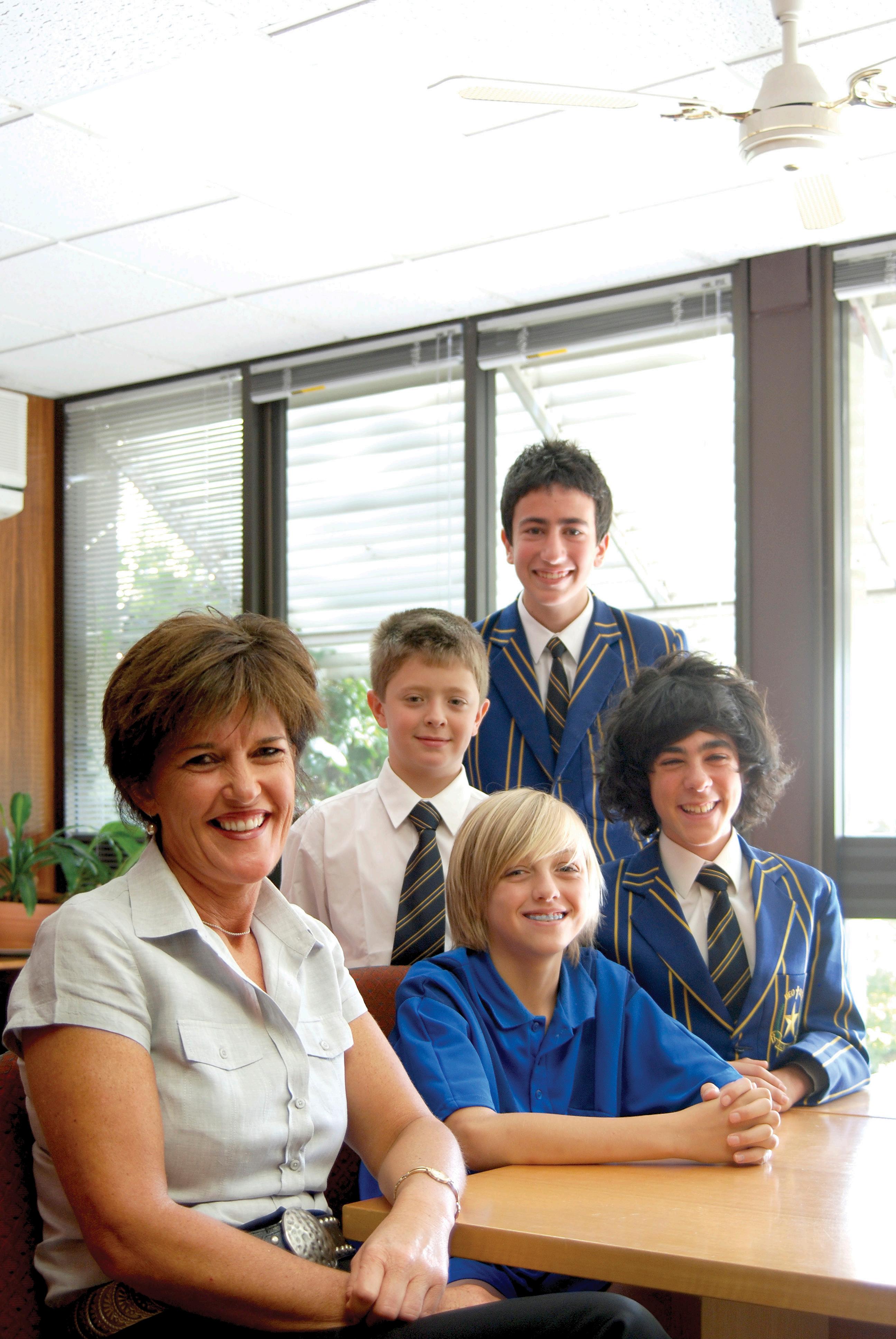
A PublicAtion for the De lA SAlle college community — mAlvern
May 2008 Print Post Approved No PP 381667/00102
Editorial
Welcome to the first issue of Roll Call for 2008. Our theme, Together They Succeeded, is the motto of the 2008 College Leaders and the successes of many of our Old Collegians are cel ebrated throughout this edition. We meet the 2008 College Leaders and learn about the continuing journey of our top academic achievers for 2007 as they embark on their lives outside the College. This edition also has a legal leaning with features on two of our graduates, Justice Bernard Teague and Nicholas Harrington, both of whom have made their mark as barristers in Melbourne. The Coolies have been to India again and some of our students have recently returned from France. There is lots of news about Old Collegians and information about how to stay in touch “on-line”. I hope you enjoy and thank you for the positive feedback after our last edition.
Kerry Martin Editor
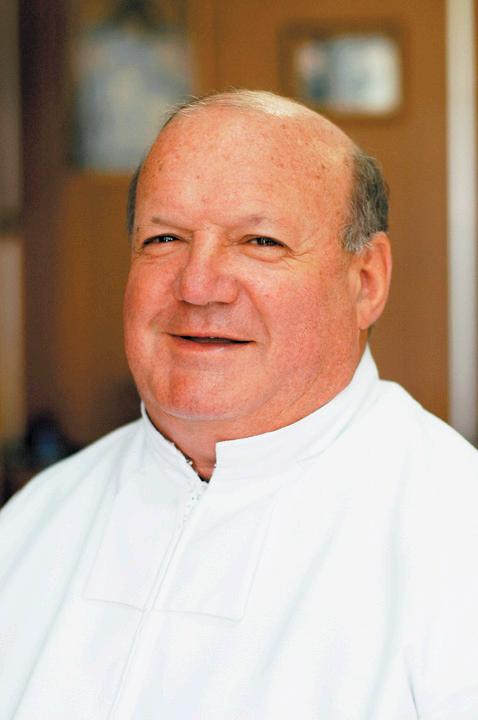
Cover Photograph: Ms Clare Kennedy-Curtis with (left to right) : Nathane Sarris, Benson Adams (seated) David De Fazio, and John Camilleri
The Christian Journey
Adults had the answers and schools existed to help children learn them. Perhaps that is too brief a summary but I suspect I began life as a student at De La Salle with that kind of simplistic notion in mind. In religion classes, we learned a catechism of questions and answers.
Supposedly, they were the important questions and, definitely and definitively, they were the right answers. So it seemed.
I knew that I would change as I grew but I had no idea the world around me would change so much and so many cherished beliefs would be challenged or simply fade in significance. I expected some changes, as had occurred in previous eras, but not the incredible rate of change that would character ise the second half of the twentieth century. Some Catholics look back, if they are old enough like me, to the fifties and earlier, the days before the Second Vatican Council, and yearn for the monu mental solidarity, the uniform certainty, the trium phalistic rectitude that was a part of the Catholic mentality of that era. Some may even look back wistfully with the thought:
“If only there had not been a Vatican Council….” It would be just as valid to say if only TV sets, the Internet, the Hubble telescope, mobile phones, fax machines or any number of technological develop ments, which have changed the way we learn and communicate, had not been invented. There have been many drivers of change that have created the world in which we now live and many difficult issues we face in the area we now call bioethics are from developments outside the Church, not from within. Today, it is not only each person making a personal journey, it is society itself, and the Church es within it, that are moving, changing, journeying.
The Anglican Church, with its low Church to high Church variations, has always allowed for more diversity than the Catholic Church but the recent di visions over the issues of women priests and bish ops, plus that of gay clergy, have left some longing for more solidarity and raised debate on matters once considered certain and clear cut.
The Uniting Church in Australia was born of the amalgamation of various Protestant fellowships including the former Presbyterians. This caused division within the Presbyterian Church that was highlighted in Melbourne by the Continuing Presby terian Church maintaining ownership and control of the prestige schools, Scotch College and Presbyte rian Ladies’ College. No doubt there are those who
2 Contents z 2 From the Principal z 4 Together They Succeeded z 6 Farewell Pat z 7 New Campus Heads z 8 A Teague of his Own z 10 A Cut Above the Rest z 12 The Coolie Blog z 15 LaSalle Youth Camp z 17 MAD z 18 “Soyez toutes Oreilles” z 19 MAD z 20 Where Are They Now? z 22 Rest in Peace Production and Photography Jon Hewett
would still wish for the days of the separate denom inations that existed before the union but most have come to accept the change.
The various Christian denominations were more clearly defined and divided in the Melbourne of my childhood. It was a very sectarian era with the Churches emphasizing more what distinguished them from other Churches rather than what they had in common. Catholics were urged to marry Catholics and there were only two Churches in Mel bourne at which “mixed marriages” were permit ted—at a side altar of St Patrick’s Cathedral or in the Catholic Parish Church in South Yarra.
Today there are far more options for “interfaith” marriages and what unites is emphasized more than sectarian differences. The relationship and interaction between the Christian Churches has improved greatly at all levels. The Vatican Council emphasized that the Church was “the people of God”. The Church exists not in its buildings, not in rules and practices, but in the faith of the people. It is natural to want certitude and unassailable convictions. It is comforting to have uniformity but life cannot be reduced to a set of absolutes.
The faithful man or woman is not the person who adheres rigidly to a black or white position but rather the honest seeker after truth, the person who finds a path through the grey, searching for God in the midst of uncertainty and even some confusion.
The faithful man or woman suffers the same an guish as the man in the Gospel who prayed: “Lord, I do believe; help Thou my unbelief.”
I once thought all the “unbelief” came from my end but now I recognise that some of the unbelief can be caused by the changing society, or even the changing attitudes in the Church, not just my own personal convictions. Each of us is on a personal journey but we are also on a collective journey where the currents sometimes ebb and flow and throw us off balance.
We should not expect religion to give us absolute certitude but it should make us better people— more caring, compassionate, forgiving, loving. Our faith should not make us rigid, dogmatic, judge mental people but people who seek God in prayer, expecting weakness and trying to help others. Our Church should be a supportive community in which our love of God and the sharing of that love are nourished. There are still absolutes: the absolute priority of love of God and neighbour, the absolute demand for social justice for all, the absolute of God’s willingness to forgive.
As John Deedy wrote:
“Absolutes retain their priority—probably not the rigid absolutes all Catholics once lived with, but absolutes that say, ‘there are rules, there is such a
thing as a norm’. Life is not merely a behavioural experience.
Where sexual morality is concerned, I’m speaking of absolutes that honoured chastity, integrity, sin cerity, purity—within a context of love and respect. The challenge for parents is to convey a sense of these absolutes to their children. One way of doing this is by living those absolutes in their own lives.” Our religious belief should not make us intolerant or unsympathetic to human weakness but neither should it make us apathetic. Our faith is a com mitment to love people, to care for them in their needs, to be men and women for others. We seek to be true to who we are and what God asks of us.
The Second Vatican Council did usher in an excit ing, positive attitude that emphasized love more than sin. “Gaudium Et Spes”, (Joy and Hope) was a key Council document trying to make the Church a stronger force for justice and peace in the modern world. A stronger sense of the community dimen sion of the Church and a greater role for the laity were very positive outcomes of Vatican II.
Personally, I have great faith in the expressed at titude of Pope John XXIII who wrote the following when as Archbishop Roncalli, (before he became Pope) he was appointed Cardinal Patriarch of Ven ice:
“I have been blessed with good physical health and enough common sense to grasp things quickly and clearly; I also have an inclination to love people, which keeps me faithful to the law of the Gospel and respectful of my own rights and those of oth ers. It stops me doing harm to anyone; it encour ages me to do good to all.”
These words express the simple, holy faith of a wonderful man. Faith does not demand miracles nor command certitude. Faith is the cultivation of our goodness, inspired by the love of God and modelled on the life of Christ. Religion should warm our hearts, not chill our souls. Nothing is more important than our attitude towards others, our fellow travellers on life’s journey. How we treat others is the real test of how Christian we are. That is the kind of religion we try to offer at De La Salle, a disposition of reaching out to all as our brothers and sisters in Christ, with an attitude that is inclusive and uniting. De La Salle is a place where honest seekers after truth are nourished on their journeys. At least that is what we are endeav ouring to do. Our students may not have all the answers when they leave school but we hope each is equipped with a disposition and set of values that will help him cope with the challenges he will face on the journey ahead.
Br Bill
33
Together they Succeeded
2007 was a successful year for De la Salle VCE students. 80 per cent of the 203 boys who completed VCE applied for a tertiary place and almost all of those received an offer. Others have already commenced employment or are traveling overseas.
Twenty-seven students received an ENTER score over 90 and eight of those were above 95. Mat thew Mitchell was Dux of the College with an ENTER of 98.65 and Max Taylor was Proxima Accesit with 98.40.
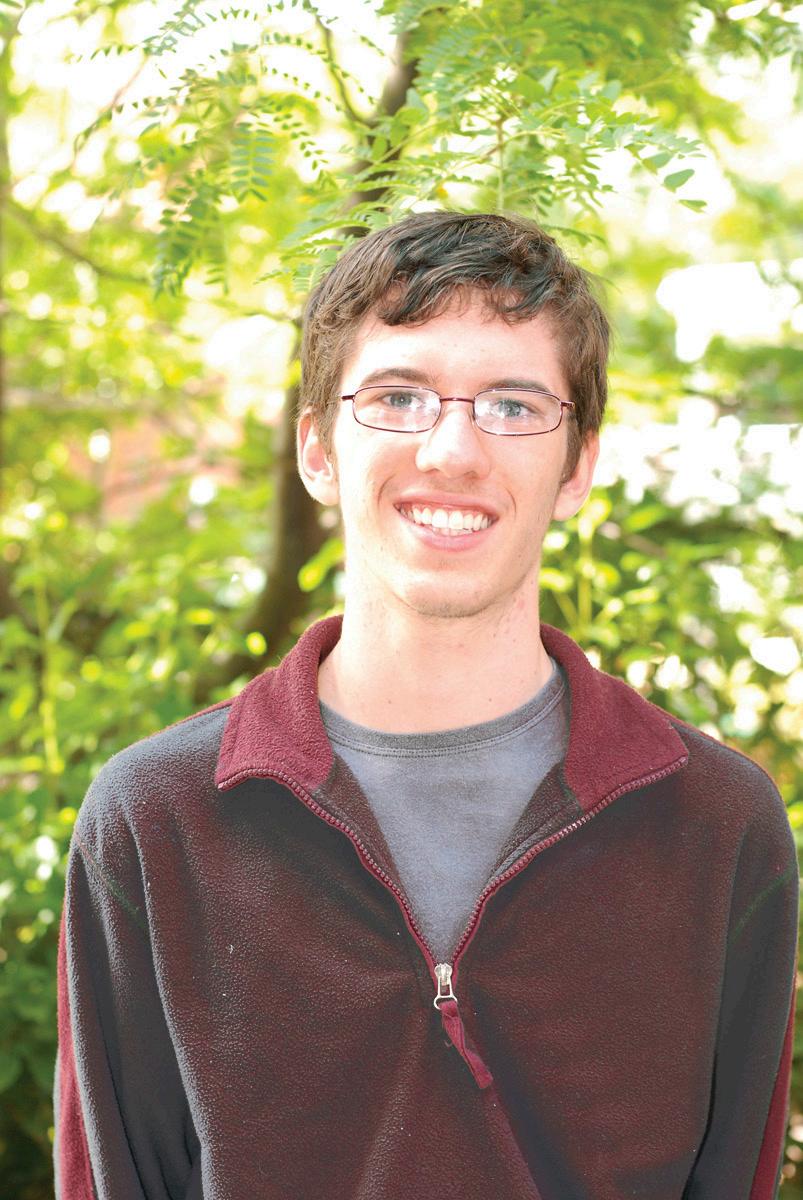
With their College days behind them, Orientation Week was in full swing and the next chapter of their lives well underway when Roll Call caught up with some of the class of 2007.
2007 College Dux, Matthew Mitchell, was already one week into his Commerce/ Economics Degree at Monash when we spoke to him. Matt said he was start ing to adjust to university life. “We are given far more independence at univer sity which in some ways is good but also it means we have to rely on ourselves more. De La was a good place to learn because everyone looked out for you and I miss that a bit.” Matt, who enrolled at the College in Year 7 after a primary education at St Anthony’s in Glenhuntly, said he always maintained a steady study regime, which in the senior years was between three and four hours a night. Matt said he had not made up his mind about a career until after Year 10. “Until Year 10, I thought I wanted to go into medicine but then realised I was more challenged by busi ness than science. Dad is an accountant so I guess I got that from him.”
Max Taylor, who attended De La Salle from Year 4, achieved a remarkable result considering his achievements in extra curricular activities, espe cially yachting. During his VCE year, Max and fellow helmsman Sam Kivell took out the Australian 420 National Title for the third time. With this triumph under his belt, Max is in training for the 2012 Olympics. This year Max is at the University of Melbourne studying Commerce and will take up a cadetship at Deloittes in July.
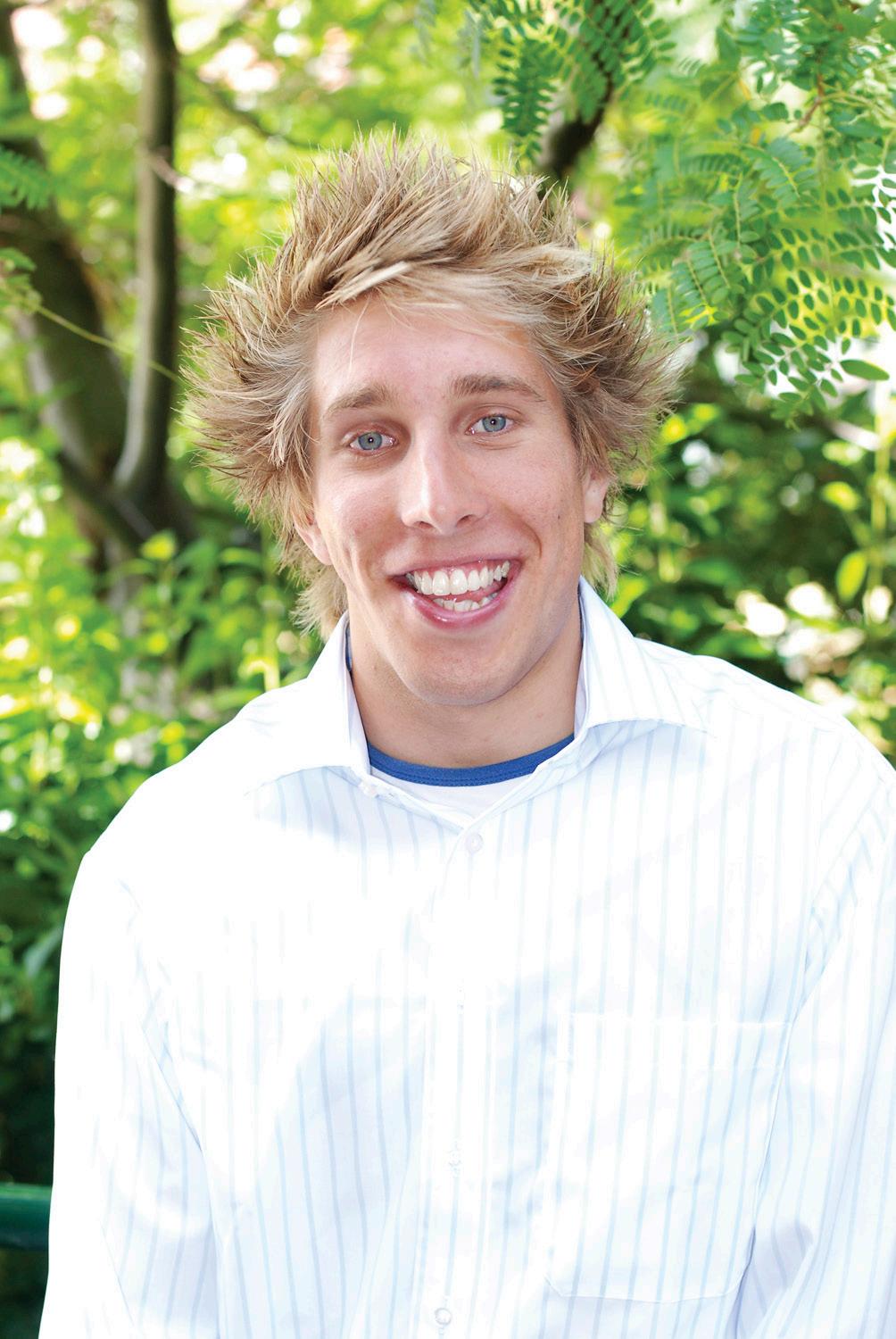
When Roll Call caught up with Angus McInnes, he was half way through “O” Week at Melbourne University and had joined the Science Students Association. Angus, who scored an ENTER of 98.05, excelled in Maths and Sciences at the Col lege and last year was one of two students from De La who won the Na tional Infomatics Awards.
Angus went to St Joseph’s Primary in Malvern and was a member of the College Chess Club. Knowing Angus’s mathematical skills, it is not surprising to learn that he accurately predicted his own ENTER score. A very calculated guess you could say.

4
James O’Connell not only achieved an excellent VCE result of 96.9, but managed to find time to represent the College in Athletics, Cross Country, Football and Cricket. He said he still plays football and Club Cricket and this year is studying Com merce at the University of Melbourne. As one of the 2007 Coolies Group which went to India at the end of Year 12, James made the most of his final year at the College. “I want ed to make my last year at De La my best and I did.” James went to Our Lady of Good Council Primary in Deepdene.

Eamon McGuire was an other of the College’s top VCE achievers for 2007 with an ENTER score of 96.55. At the College, he played saxophone and developed a passion for Italian. When Roll Call talked to Eamon he was in his first week of lectures in his Arts/Science degree at Monash University. He says he is very keen to visit Italy when he graduates. He attended Armadale Primary School.
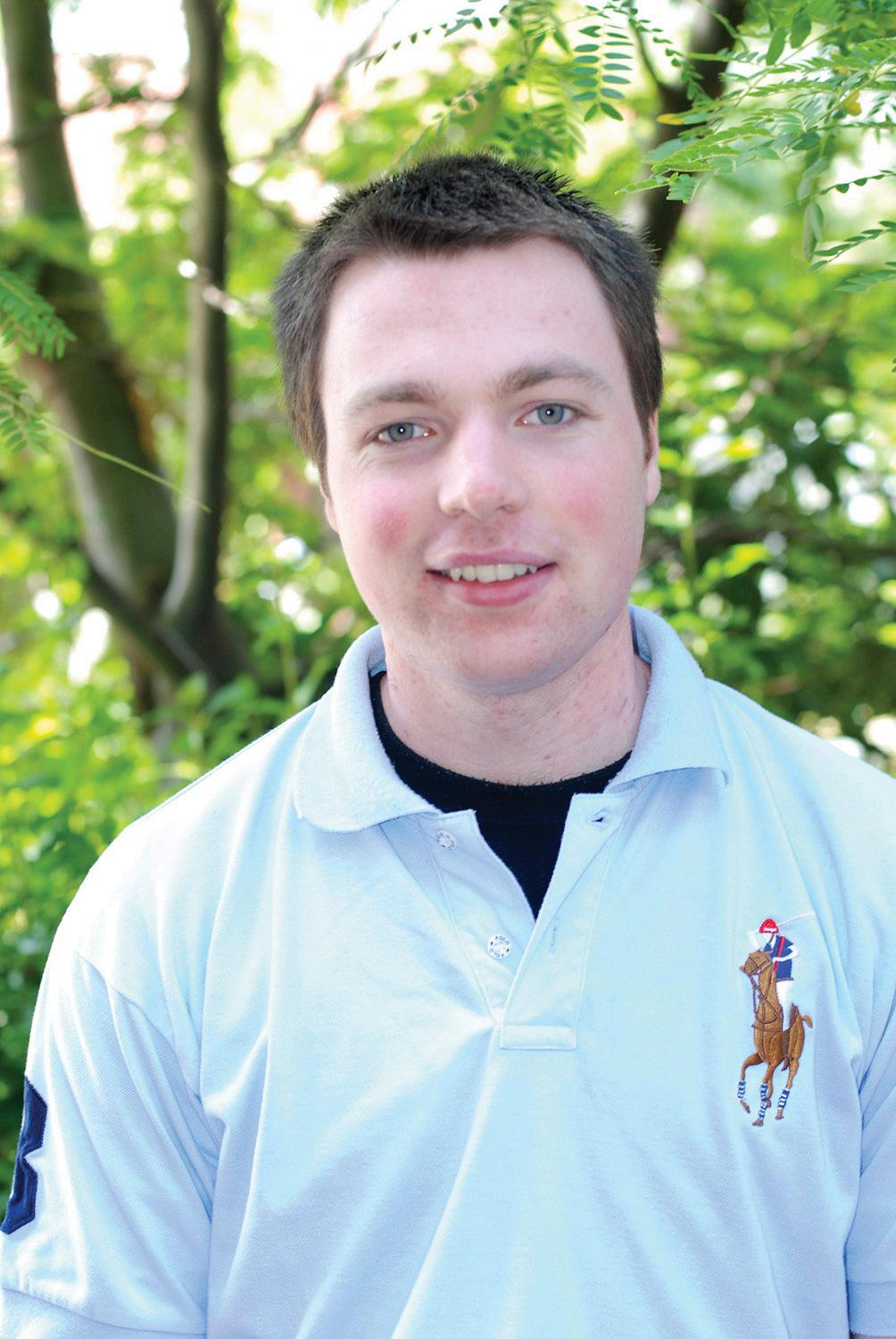
VCAL in 2007
Last year marked the fifth year of VCAL at De La Salle. Thirty-five students took up the VCAL option in 2007 at the Intermediate (Year 11) and Senior (Year 12) levels. They undertook classes in Literacy, Numeracy, Work Related Skills and Personal Development Skills, which includes RE and Sport.
VCAL students were involved in at least a day per week in an industry workplacement. This ‘on-the job’ experience helped students gain a better understanding of the world beyond school as well as offering them an edge in a very competi
Success in this program is not just for those students who complete their certificate, but also the number of students moving into fulltime Apprenticeship or Traineeship arrangements, which includes on-going training during the year.
We are very proud with the achievements of all students who completed a Senior VCAL program last year. These great young men are currently ei ther in fulltime employment, or undertaking either an apprenticeship or traineeship (in fields ranging from Carpentry through to Hospitality Manage ment) with some students currently studying
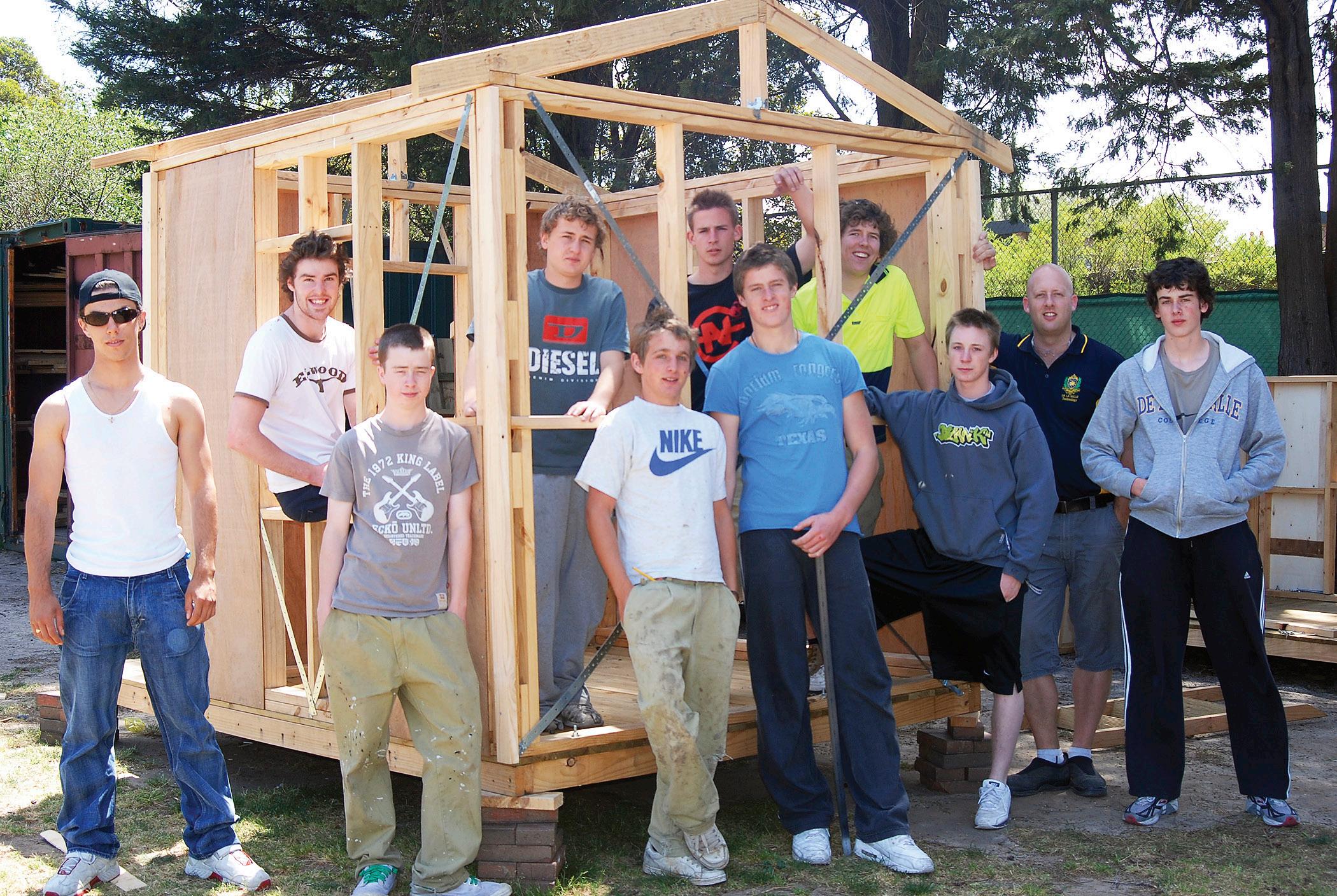
Farewell Pat
After 27 years as De La Salle College’s Receptionist extraordinaire, Pat Phelan retired at the end of 2007. For thousands of students, parents and staff, Pat was the “face” of the College, the first point of contact and the one to whom everybody looked for advice, for help, for directions, for information on anything and everything, even Band-Aids. To honour Pat’s 27 years of service, the College has estab lished the Pat Phelan Award, which will be awarded each year to a student who started at De La in Primary and reached their potential. Joan Ferguson paid tribute to Pat at her farewell. “Pat is the living reality of everything we, at a Lasallian school, aspire to.” Adapting a quote from Robert Louis Stevenson, Joan said, “That woman is a success because she has lived well, laughed often, and loved much; who has gained the respect of intelligent people and the love of children.” Joan said that Pat’s role was much more than that of a receptionist. “She was literally in the front line, working at the College reception dealing with a variety of issues every day.”
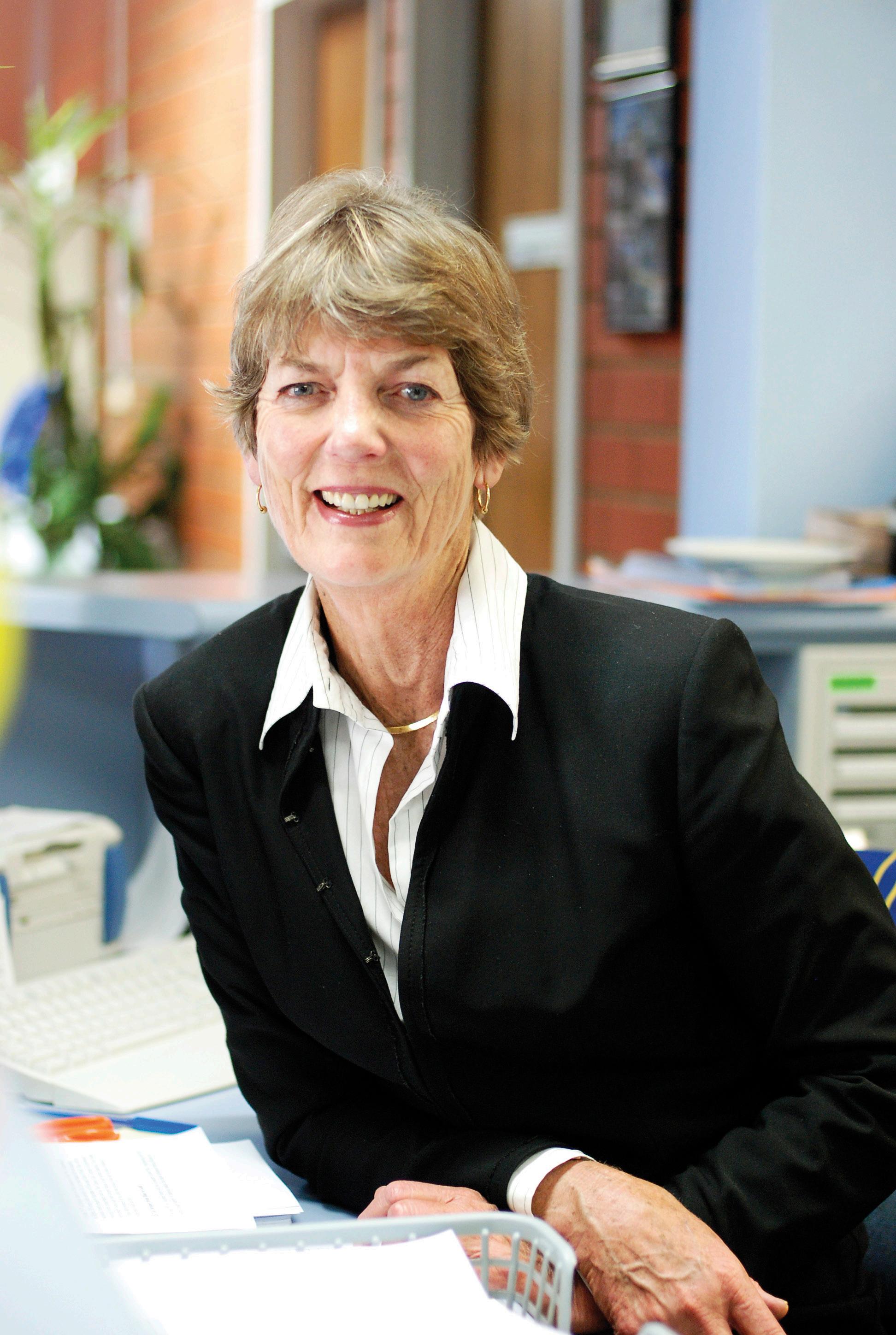
What was your first job at De La Salle?
“I joined De La Salle 27 years ago, working two days a week in the office. In those days my job was very different. I remember the change when we got electric typewriters. Computers hadn’t even been thought of then.”
What is one of the strongest memories of working at De La Salle?
“Not long after I started work at De La Salle it was my daughter’s 18th birthday and I was busy making preparations for her party. I mentioned at work that I needed to buy glasses and someone in the office said just borrow some from the Hall, it will be fine. And as it turned out they were right and I was able to borrow all the glasses I needed. I wasn’t used to this sort of generosity.” You must have seen a lot of boys go through De La Salle over 27 years — have there been many changes in the student population?
“Boys these days are far more confident in their day-to-day dealings with people. Years ago, the boys, especially in the younger years, were far less likely to speak their minds. These days they are very comfortable in expressing themselves.”
What changes have you seen in the teaching staff?
“There are more women in teaching positions and I think they are held in a much higher regard than when I first started. For example, women are now teaching across all the subject areas. And of course everyone used to smoke at work, which made the working environment very different.”
What does the Pat Phelan Award mean?
“I love the fact that the award is for a boy who started De La Salle in Primary and I love that be cause the Primaries are so gorgeous. I would like to see the Award named after me to have a part in encouraging a child to fulfil the promise seen in him in primary years.”
6
New Campus Heads
In 2008, the College appointed new campus heads. They spoke to Roll Call after their first 100 days.
 Steve Young
Head of Kinnoull CampuS
Steve Young
Head of Kinnoull CampuS
I am delighted to have been able to take up the position of Head of Kinnoull Campus this year. For me it is a resumption of a long-dormant La sallian connection. The connection goes back to my own student days at St Bede’s from 1965 to 1970. (It would appear that one of the constants in the Lasallian connection is having encountered the wonderful work of Br Quentin).
After graduating in Commerce and Education at Melbourne University I taught for some 15 years in the state system at Chandler High School and then at Frankston High School. During this time my wife Kath and I had five children and settled in Frankston. This was also the time of my ac tive sporting involvement in marathon running and longer distance triathlons. (All at very slow speeds I need to emphasise.)
I returned to Catholic education in 1990 taking up a position of Year 12 Coordinator at John Paul College, the Catholic regional college in Frankston. In this time I really discovered what a catholic community is when Kath became seri ously ill with cancer, dying in 1991. The support I received from the school and parish community during her illness and subsequently in raising the children was just unbelievable.
I remained at John Paul College for 18 years and as Deputy Principal—Students for the last 11 years of that time. With the children now adult and the youngest having commenced university in 2007, I was delighted when the opportunity came to apply for the De La Salle position.
I have been warmly welcomed by staff, students and parents alike at Malvern. My first term has been one of growing appreciation of what a great
JoHn mCalroY
Head of tiverton CampuS
After 3–4 weeks into my new job, I wondered “what have I done?” There were Information Evenings, Year 7 Camps at Jan Juc, the House Swimming Carnival, the Year 4s play, Mathletics, Tours of the College, the Year 10 Music Night— “Music after Dark”, visiting classes, and I am sure there are other things that I have missed. It all seemed too much!
But I learnt that this is De La Salle College—in volvement, enthusiasm and participation. Person ally, I would not have it any other way. It has been a “mind-blowing” experience, but an extremely positive one. The welcome I have received from both staff and students has made the transition to a new school a very smooth one. Then again this is what I would have expected of a Lasallian school. Having spent nearly all of my school life, as a student and teacher, in schools run by the De La Salle Brothers, I know these expectations are the norm. My coming to De La Salle College completes the trifecta, as I have been involved with all three Lasallian schools in Melbourne.
In the late seventies, I was a student of St James’ College, before completing Years 11 and 12 at St Bede’s. After completing a teaching degree at Rusden, specialising in Mathematics, Sci ence and Politics, I was fortunate enough to be welcomed back to St Bede’s, by Br Bill Firman, who was the Principal of St Bede’s at the time. I spent 22 years at St Bede’s, where I was Head of Mathematics and in more recent times, a Senior School House Coordinator.
I am very much looking forward to my time at De La Salle, and the opportunity to work once again with Br Bill. My aim is to repay the faith that the Brothers have shown in me over the years.
Left to right: Mr Steve Young, Mr Peter Riordan and Mr John McAlroy
7
A Teague of his own
The inaugural appointment of a solicitor to the Supreme Court Bench sent shockwaves through the Bar. But with the recent retirement of Justice Teague, his career has been judged an out standing success. The following interview with Justice Teague, an Old Collegian of De La Salle College, is published with permission of the Law Institute Journal.
Retirement will not come easy to Supreme Court Justice Bernard George Teague. “It’s not a prospect I look forward to but I’ve got to go as I turn 70 in two weeks time,” Justice Teague told the LIJ at the end of January. For the moment, his retirement plans remain flexible. “I am still prepar ing to complete my time on the Bench and then consider what’s open. “I have made a commitment to remain heavily involved with the Parole Board. I am chair, and have been chair or deputy chair since 1991. “It is work that is de manding as it involves assisting people who are under-privileged in a general sense.”
Justice Teague said he would expand his inter ests in cycling and clocks after retirement, but would be more than happy to come back to the Supreme Court and help out as an acting judge if asked. However, he said that would be unlikely until differences on the subject had been settled between the Attorney-General, the Law Institute of Victoria (LIV), the Bar and the Court.
“Our position in Victoria is very different to that of NSW where they have many acting judges, helping out on a continuing basis. “We have a considerable number in the County Court but the questions of principle make it difficult to see that there is any clear good solution in the shortterm.” The general regret expressed by members of the profession at Justice Teague’s compulsory retirement contrasts with what had been a less than warm welcome by some to his appointment in 1987.
Justice Teague had been a solicitor, partner at Corr & Corr (now Corrs Chambers Westgarth) and twice president of the LIV—not the usual route via the Bar and silk to the Bench. “I was the only solicitor to be appointed to the Supreme Court Bench, although David Jones, who had been LIV president in 1977, had been appointed to the County Court a couple of years before.”
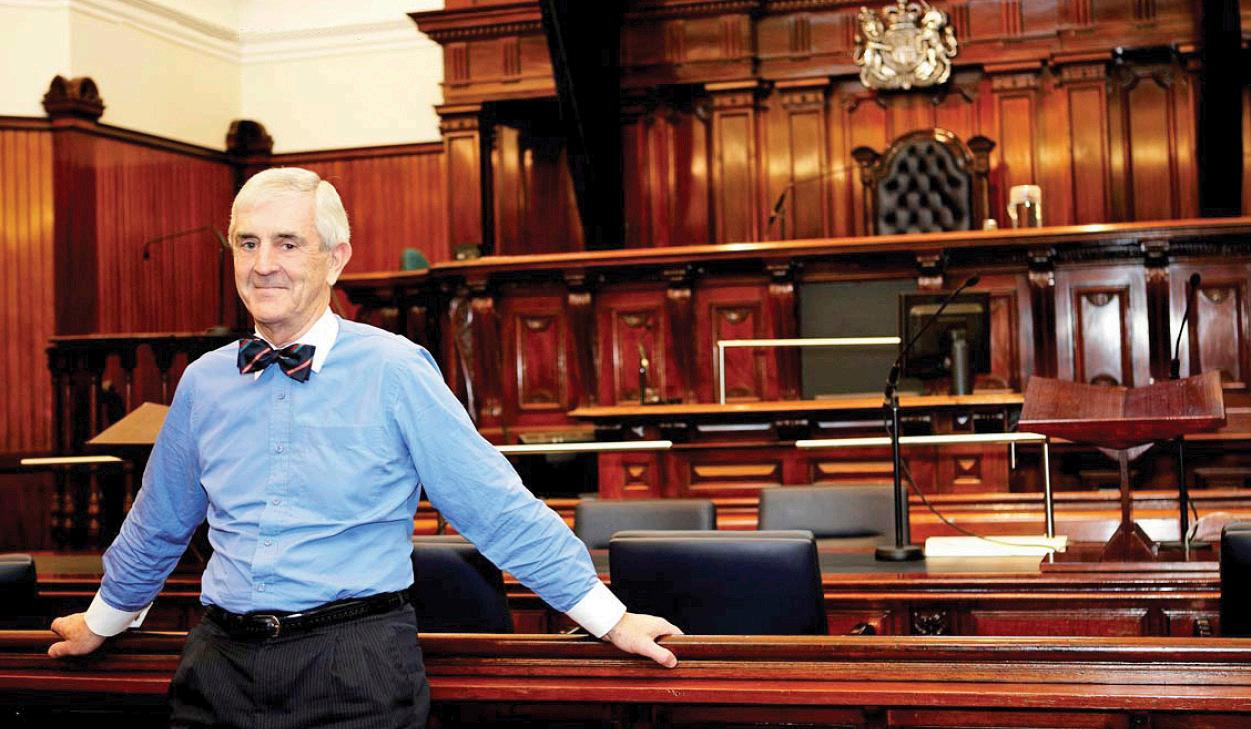
Justice Teague acknowledged that at the time there was some reluctance to countenance his appointment, which remains the only time a solicitor has taken up a seat on the Supreme Court Bench in its 156 year history. “I was very apprehensive, but perhaps it’s my nature and what I did was to impose myself on the judges who were probably not happy about me being appointed. “However, once I was there they were prepared to support me, including the Chief Jus tice of the time, Sir John Young.
“[Justice] Frank Vincent was a mentor for 20 years and many others, up to the present Chief Justice [Marilyn Warren] have been supportive. “A lot of other judges were willing to give me a second opinion when I needed it. “Yes, it
8
was relatively traumatic, particularly the first 12 months, but I would say it’s not all that different for all those moving from the Bar to the Bench.”
When Justice Teague first sat on the Bench he did mainly civil work, but since 2001 he has been the principal Criminal Division Judge. Over the course of his career, he presided over 90 murder trials and many child abuse matters. Justice Teague said these were the most difficult cases for a variety of reasons. “This is partly because the media generally shows a strong interest in those sorts of cases and one knows that one is likely to get substantial press criticism at the end, whatever happens,” he said.
“As head of the Criminal Division it was my re sponsibility to allocate [cases] and I was always apprehensive allocating out cases where the victims were children because of that high media interest. “At times I had to accept I did more than my fair share of them, but I was always troubled by them.” He said he had sentences increased only twice by the Appeal Court, both in cases involving deaths of young children.
CAREER HIGHLIGHTS
JUSTICE BERNARD TEAGUE
Secondary De La Salle College Tertiary University of Melbourne BA, LLB (Hons) 1962
Admitted Supreme Courts of Victoria, NSW 1963-1987 Corr & Corr (later Corrs Pavey Whiting & Byrne, now Corrs Chambers Westgarth) 1968-1987
Herald & Weekly Times Limited, principal legal/editorial adviser 1974-1987 LIV Council member 1976
Admitted solicitor UK 1978/79 and 1986/87 LIV president 1987
Appointed Supreme Court of Victoria 1991 2008 Victorian Adult Parole Board, deputy or acting chair
“These cases can be very hard to weigh up for a variety of reasons.”
Sentencing was never easy, he said. “You have to balance multiple factors in the right way. You are cognisant of the need to do the right thing by victims, prisoners and their families and the community and there is an interplay of principles involved.
“Sentencing is as difficult now as it was at the start [of my term as a judge]. “People can’t ap preciate how gut-wrenching the whole sentencing process can be.”
Justice Teague said in considering his career on the Bench he did not think in terms of particular cases but rather in terms of output and in being an “enthusiastic innovator”. He was an enthusi astic supporter of innovation in legal practice as a solicitor and at the LIV, and brought that enthusi asm to the Bench.
2001
Appointed Principal Criminal Division Judge 2008 Retired
Justice Teague’s capacity for work is well known. As well as being Principal Criminal Division Judge since 2001 and being deputy or chair of the Vic torian Adult Parole Board (as previously stated), he’s been chair of the Victorian Forensic Leave Panel since 1998 and an Institute of Forensic Mental Health Council member since 1998 and deputy or acting chair since 2000.
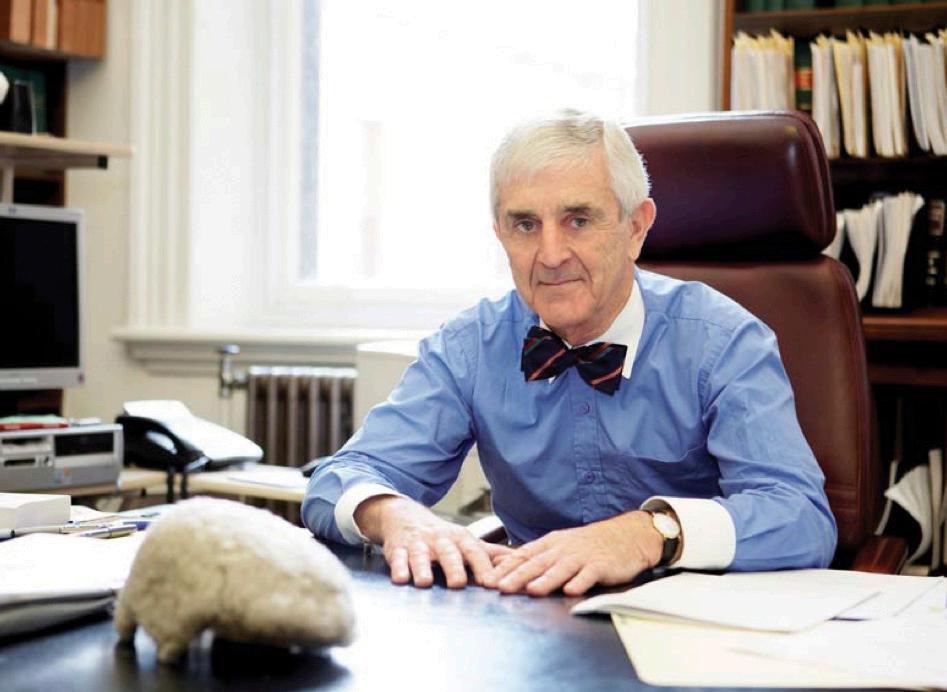
The early starts are one way of coping with the workload but he is also well known for his use of technology and organisational skills. He can touch-type and has always typed his own rulings, judgments and directions to juries. He said typing helped him organise his ideas and also helped the juries when he had to provide information.
“I have always been interested in technology. Both of my brothers have engineering degrees. You might say, I’m the black sheep of the family. There was always a strong influence from my family to be organised.” Justice Teague was one of the first judges to let cameras into the Court when he allowed the sentencing of a convicted child killer to be televised in May 1995.
Justice Teague said he came to the Bench with an interest in court media liaison work and was familiar with requests to televise proceedings. “I also spent some time in New Zealand work ing on judicial ethics and they were doing a lot of work as regards to television, and doing it in a controlled, sensible way,” he said. “My automatic reaction when asked was because it was done so sensibly in New Zealand, there was no reason why it could not be done here with an appropri ate case.”
by Michele Frankeni
9
A cut above the rest
By Kerry Martin
Nick Harrington is impeccably dressed in the usual garb of a barrister—pin-striped suit, starched shirt and tie. His suit is from a hip boutique in London and that tie—it’s so green it’s almost luminous. This is a young man who knows how to make an entrance, a skill not entirely wasted on a barrister.
I soon realize however that there is more to Nick than a smart suit and a bright tie. He is a lawyer with passion. Wherever issues of fundamental liberty or social injustice are concerned, Nick is involved. His clients include the disaffected, the “little guys who suffer at the hands of injustice.” He offers his time pro bono to the under- re sourced, including the Bali 9, the Aboriginal Justice Agency and JobWatch, He writes plays about death row inmates and deplores hypocrisy and closed minds. One thing is for sure, Nick Harrington has fire in his belly.
Growing up in Malvern, Nick started school in Year 4 at De La Salle in 1979 and completed Year 12 in 1987. After graduating from the University of Melbourne with Honours in Law in 1993, he completed his Articles at Dunhill, Madden, Butler and was admitted to the Bar in 1999. He now lives in a South Yarra with his wife Mia and their sons Jasper 5 and Jude 3.
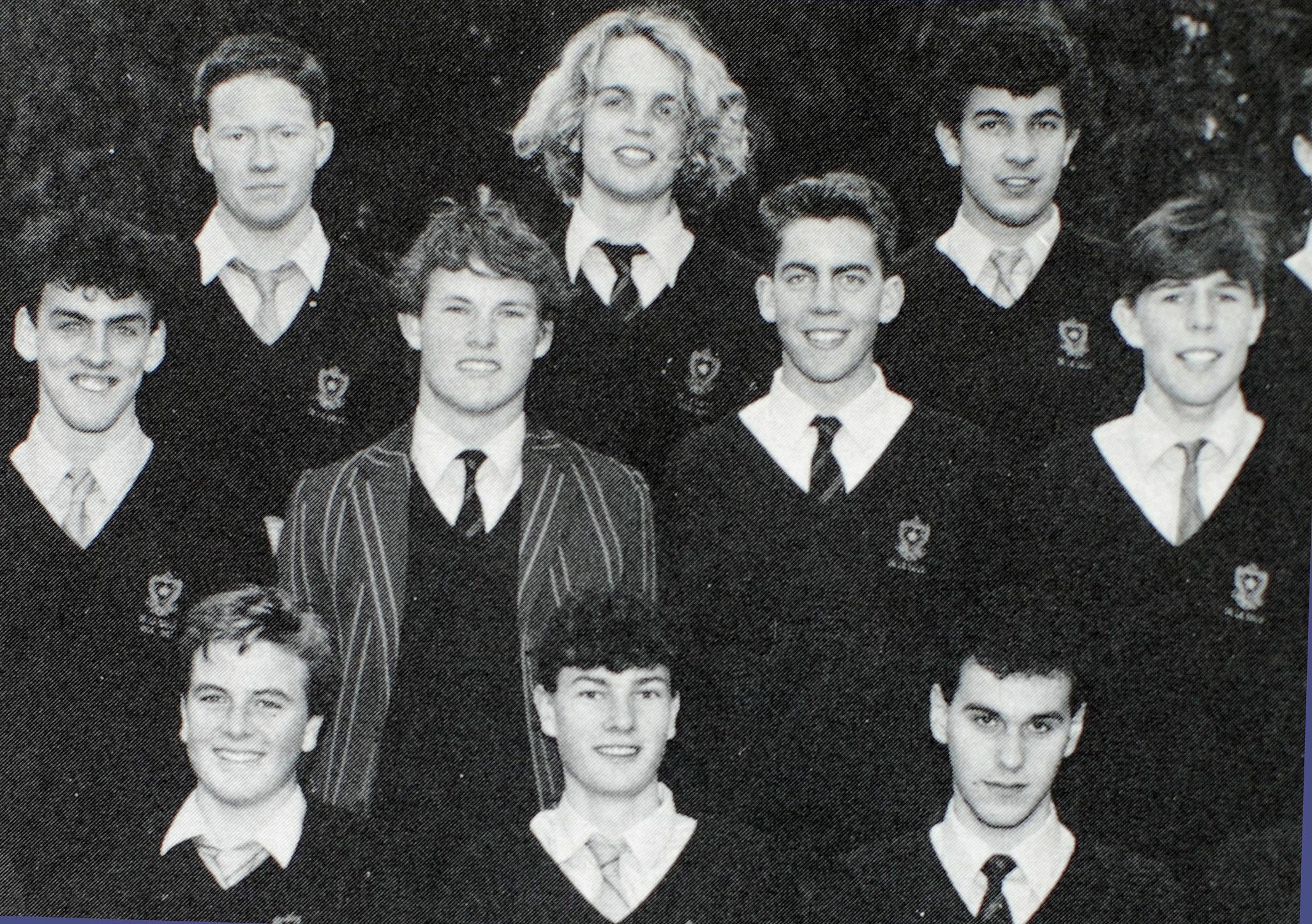
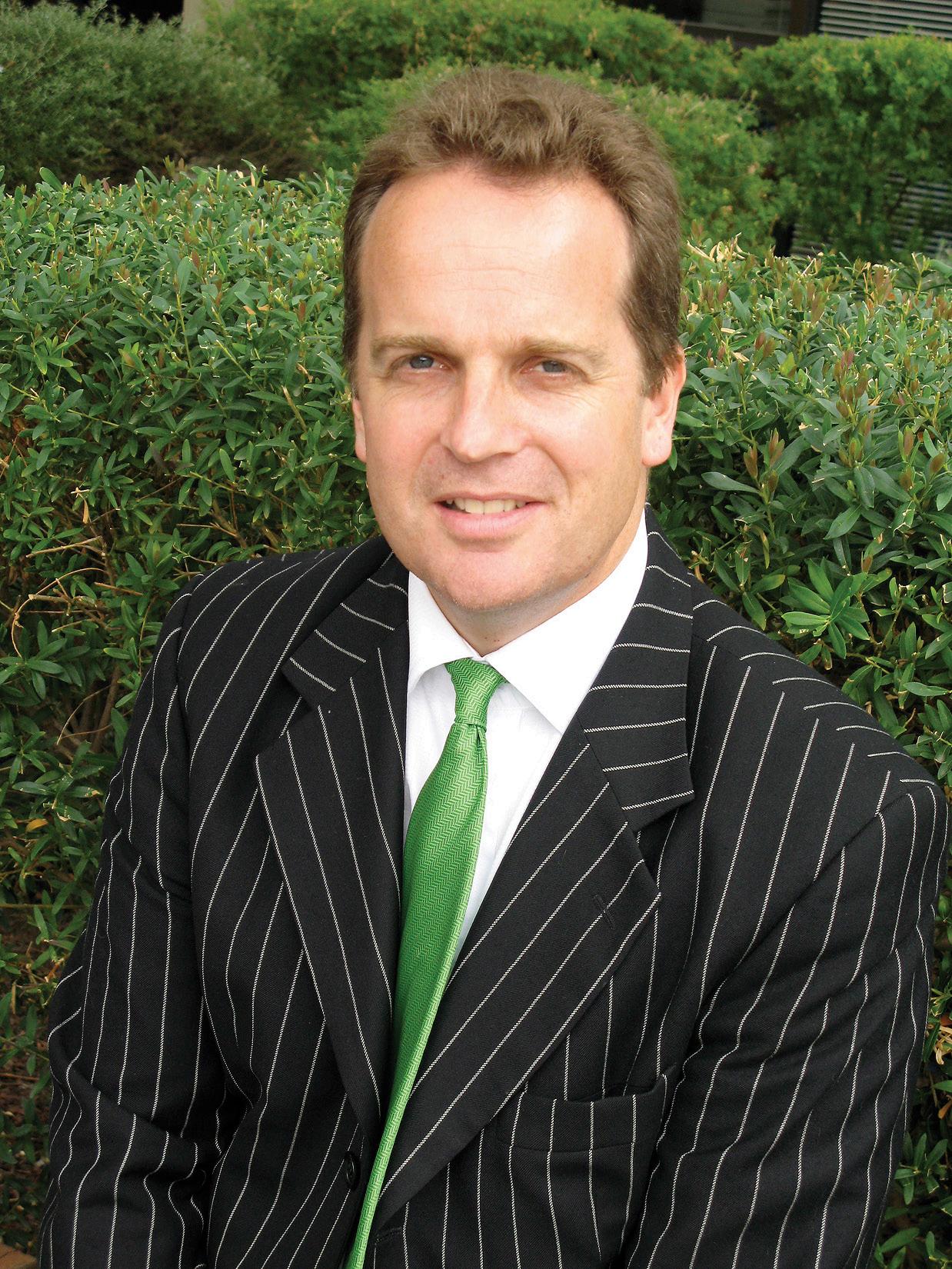
As Nick told Roll Call, on a recent visit back to his old school, his life so far has taken many detours from his cozy existence in Melbourne’s leafy eastern suburbs.
While the plot doesn’t read so out of the ordinary—school, university, career, marriage, fatherhood, it’s the twists and turns, which make his story anything but dull. The gloomy surrounds of Death Row in Louisiana and
the London stage are part of a story which cov ers vast distances and diverging interests.
Nick confesses he was a bit of a “loud mouth” at school. Always outspoken and not afraid to argue the point with his teachers. He admits he was not the “perfect student” but one with an enquiring mind.
“From about Year 8 the blood started to boil a bit and I became quite outspoken and was much more confident at articulating my views.”
For as long as he can remember, he has always cared about social justice and wanted to understand other cultures.
“I have always had an overarching sense of social justice. And at school I remem ber thinking that some things in the world were unjust. Even at school I knew I was opposed to the death penalty.”
“I was also motivated by social justice at univer sity too.”
10
After grad uating from university, Nick visited the United States and became interested in a group called Reprieve, an interna tional lobby group campaigning against capital punishment. When he returned to Australia he es tablished the group’s Australian chapter and after six years as the group’s President was recently made an Honorary Member.
Long before Nick discovered his passion for law, he dis covered his passion for the theatre and was involved in amateur theatre from an early age.
“From Year 4, I was involved in the school drama produc tions or Reviews as they were called in those days. That was the seed of my interest in theatre,” Nick said.
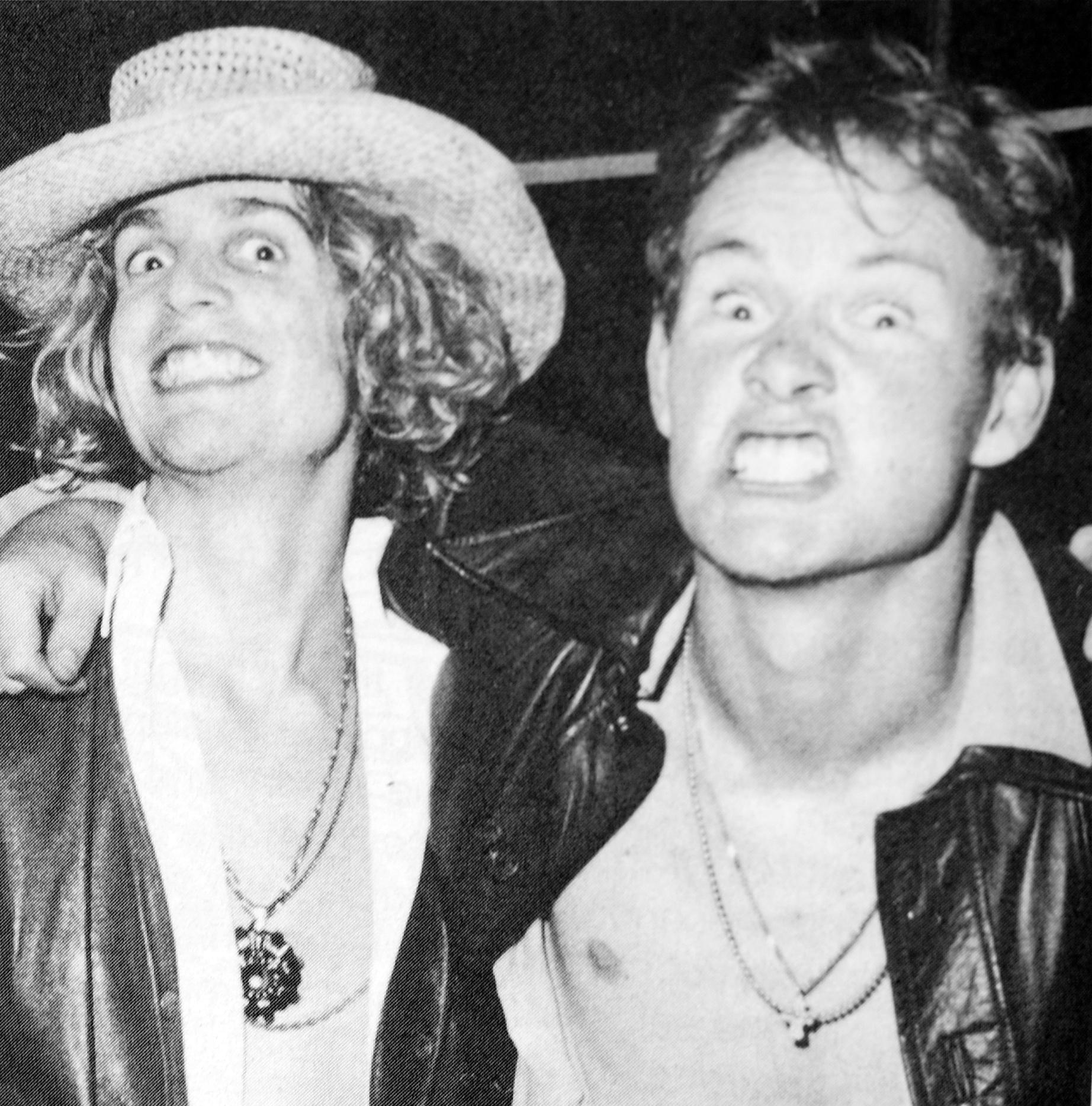
After De La Salle, he formed Theatre Tarquin, which has staged successful productions here and overseas. Tarquin has tackled tough issues, which Nick sees as an effective vehicle to pro mote his opposition to capital punishment.
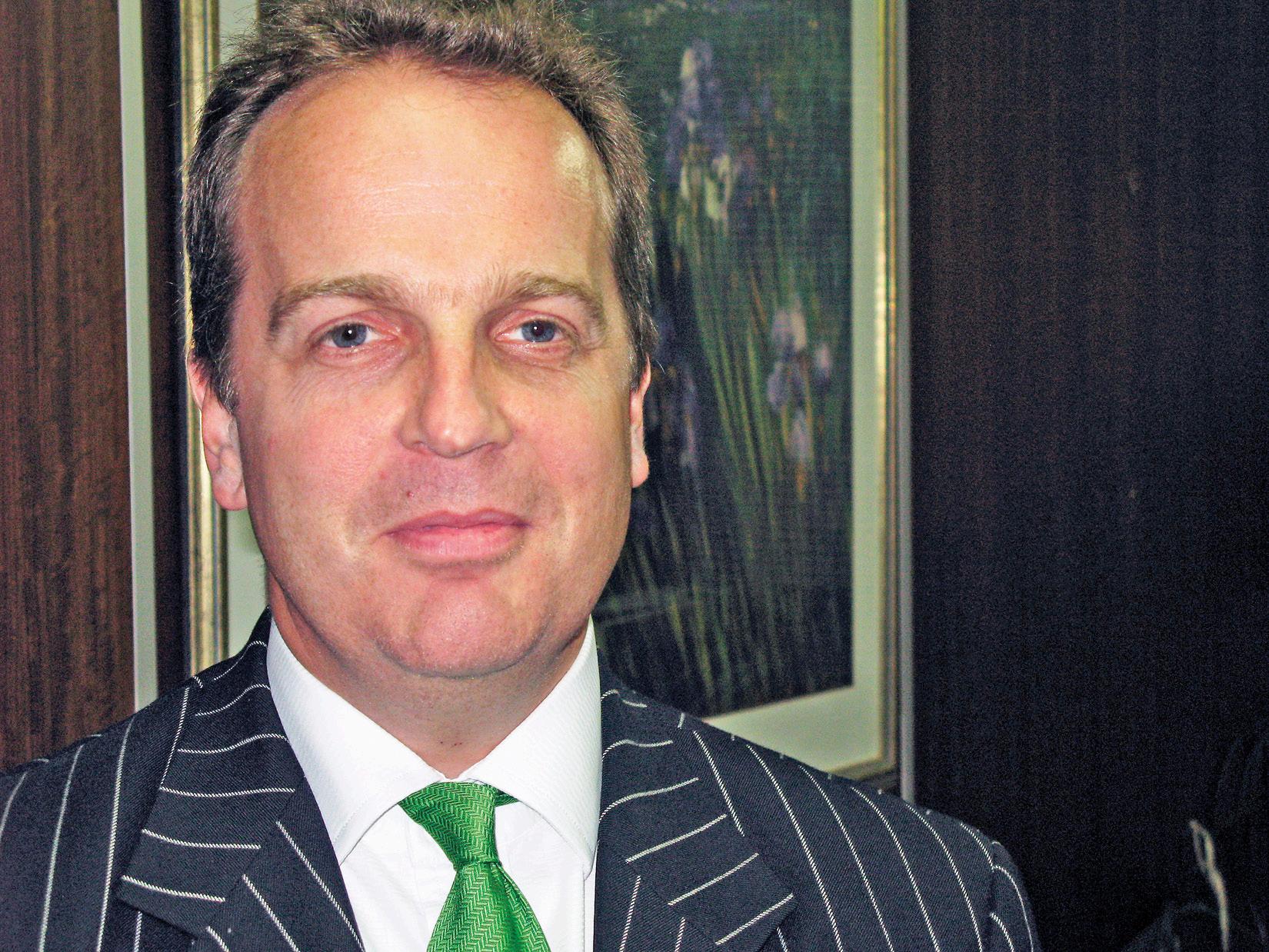
A subsequent production, Lorilei, directed by Harrington, opened at La Mama in 2004. Lorilei received international acclaim and won the 2007 BBC Sony Radio Academy Award for best radio drama.
Lorilei was based on the story of Ricky Langley, who, when Nick met him, was languishing in a Lousiana Prison, awaiting execution. His opposi tion to capital punishment perhaps made it in evitable that Nick would cross paths with people like Langley.
As Nick explained, Langley was tried and sen tenced to death for the murder of a six-year-old, Jeremy Guillory. The dead boy’s mother, Lorilei, after whom the play is named, on hearing the story of Langley’s tragic upbringing became his strongest supporter and campaigned and even tually managed to have his Death Sen tence commuted to life in prison.
Meeting Langley obviously had a profound effect on Nick as he talks about him with a rawness and empathy.
“I met Ricky Langley on death row in 1998. Even though his sentence has now been commuted to life, at that stage he was looking down the barrel, and the experi ence of being with him was extraordinary.”
“There is so much emotional architecture on death row. During our talk, he was in chains. Sitting face to face with him it all gets stripped away and you are aware of the fact that he is a human being.”
Nick is currently adapting Lorilei for radio and it will air on the BBC in July. He also hopes to take the play to America where he believes it will have substantial impact.
Still not yet 40, Nick juggles 70-hour weeks and fatherhood. But he has never been afraid of hard work.
“Even though I might have mucked around a bit at school I always worked hard—spending 3-4 hours a night doing homework.”
“I am deeply indebted to De La Salle for a lot of things. And the older I get the more I reflect upon it. My Year 4 teacher (Ms Finn) opened my eyes and let me discover myself.”
Nick’s first theatrical venture, This is a True Story was co-written with Tim Wright, now the Artistic Director of the Sydney Theatre Company. The play enjoyed outstanding success in the United Kingdom.
Both Nick’s younger brothers, Anton and Luke, went to De La Salle. Luke held the ACC 100 me tres record for six years in a row.
Nick’s advice to De La students of the graduat ing class of 2008 is to work hard, keep an open mind and know yourself. He admits the last is the hardest.
11
“For as long as he can remember, he has al ways cared about social justice and wanted to understand other cul tures.”
The Coolie
De La Salle teacher, Joseph “Peppe” Di Ciccio, was part of the 2007 Coolies trip which left Melbourne for India at the end of last year. During his six weeks in India, Peppe maintained a detailed “blog” of the trip and in this edition of Roll Call we have published some of his travel tales.
them to India, where they do volunteer work at projects run by the De La Salle Brothers
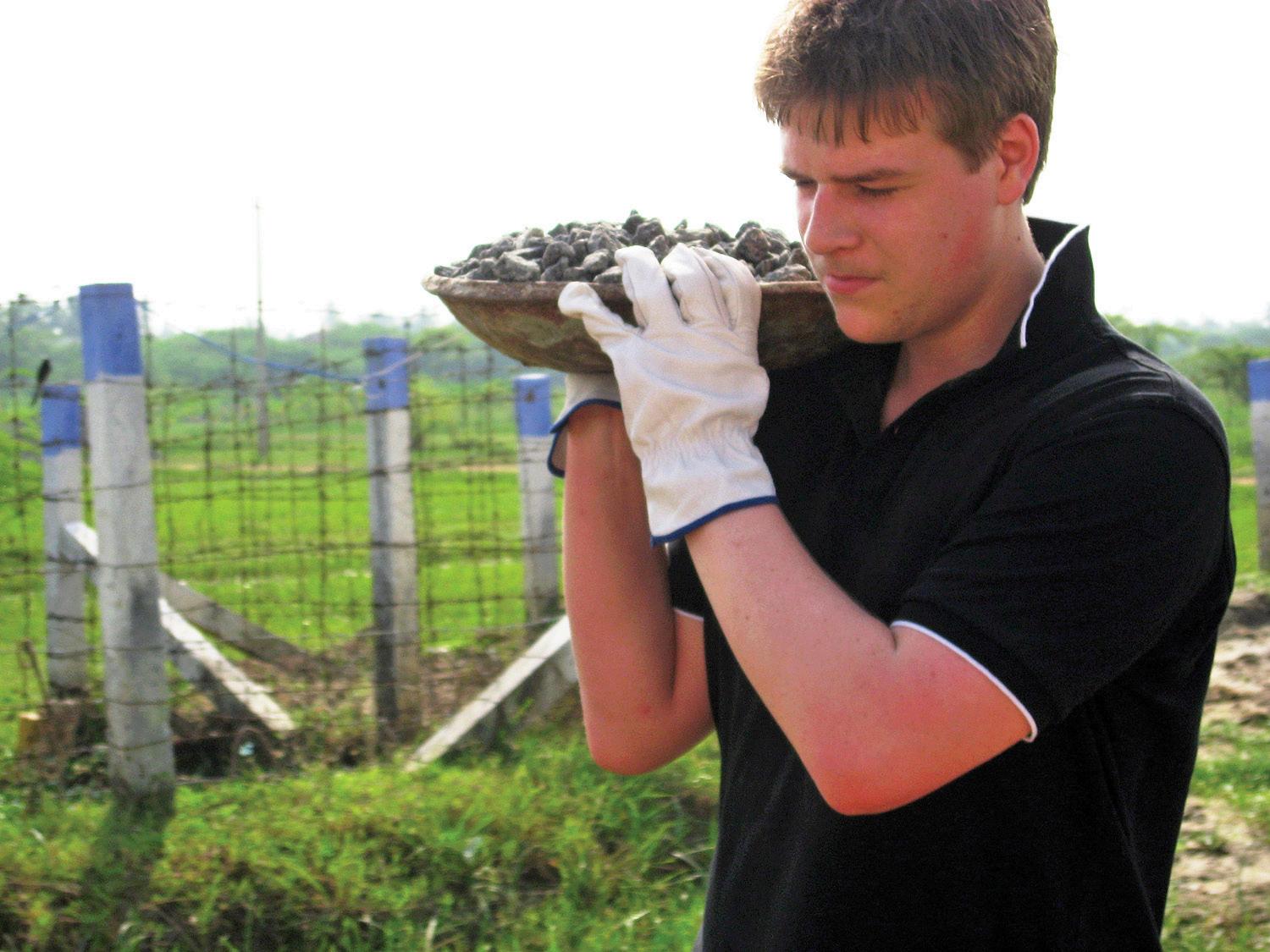
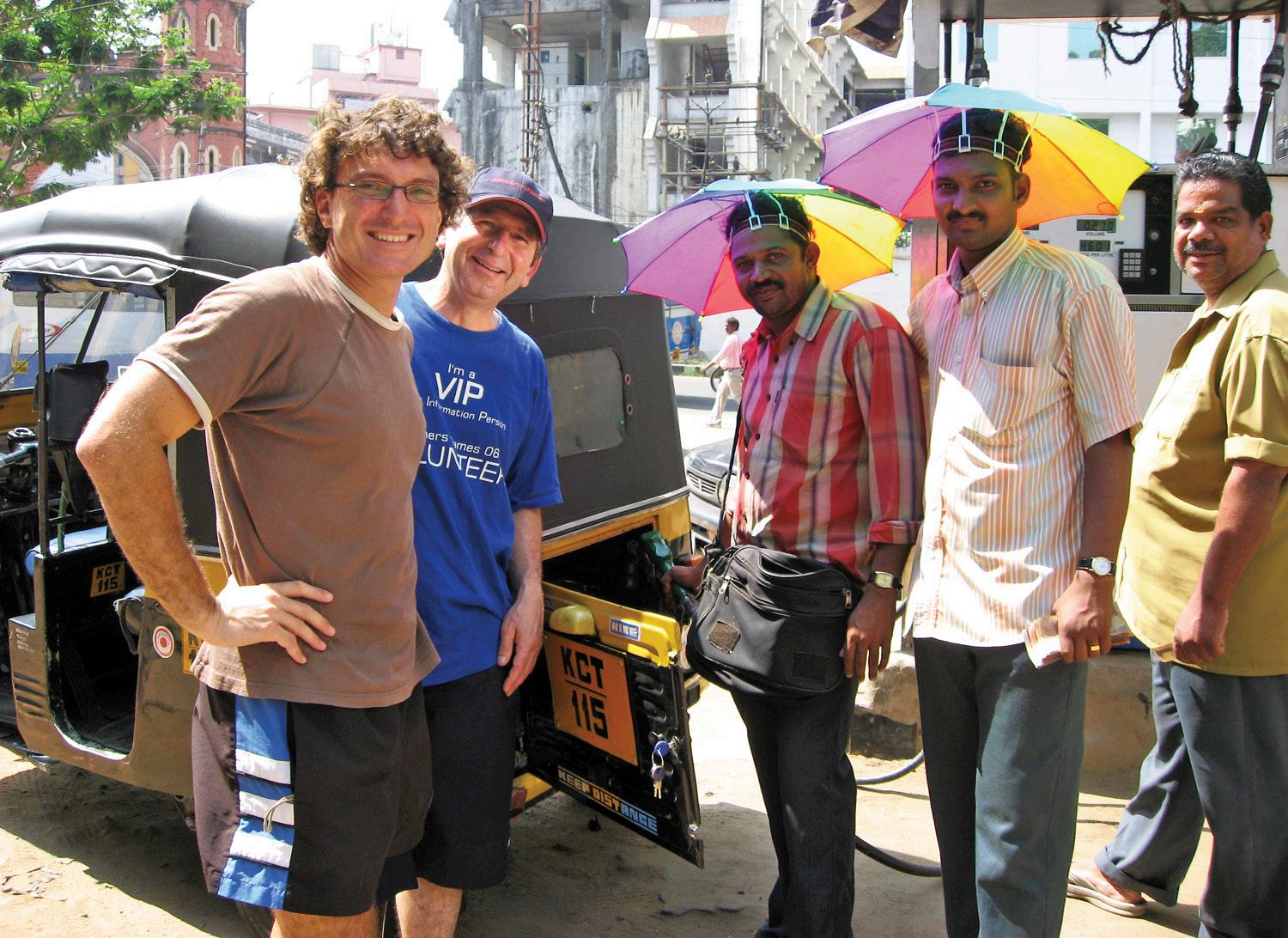
A “Coolie” (variously spelled Cooly, Kuli, Quli, etc.) is a historical term for manual labourers from Asia.
My mission was to accompany 18 De La Coolies on a flight to Chennai in India. We would be met by two other staff and more students making up a group of 22 students.
India is an assault on the senses and people often comment on how much India affects them. I’m not sure when it was that I fully realised I was in India. Some people say it’s as soon as you get out of the airport, or the first time your bus has to go around a cow taking a rest in the middle of the road. Some people think that the fact you are having a conversation with someone at the train station counter about the next train, all in English, but still can’t make yourself understood, is a fairly good sign. Some of the boys thought that be ing asked if they knew Ricky Ponting was a fairly good sign, so much so that they chose one of the boys to actually be Ricky’s brother. The fact that he would have been Ricky’s long-lost Italian brother didn’t seem to perturb either the boys or the Indians.
Now just in case you are not sure, the De La Salle Coolies trip takes a group of Year 12 students who have just finished their exams and, instead of their enjoying the “normal” schoolies activities at somewhere like Surfers Paradise, transports
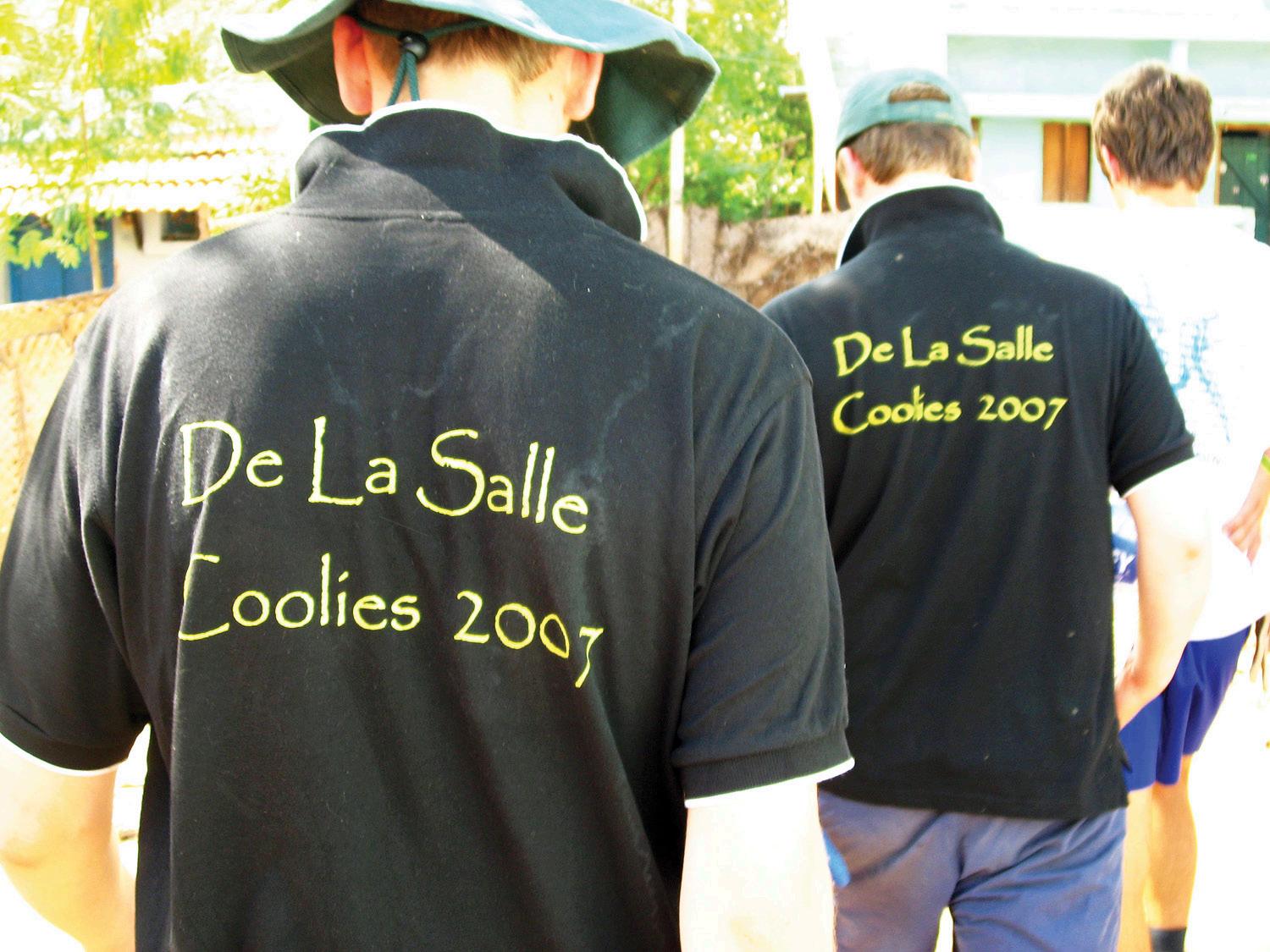
We were off to India to help build 12 small brick houses of a Classroom/Community Centre at two sites in Tamil Nadu. All construction costs were covered by funds raised by students during the year. One site was based in G. Kallupatti where a mission called “Reach the Unreach” (RTU) is being run by 74 year old Brother James Kimpton. Here the boys helped to build 12 small brick houses. The other was at the seaside village called Nagapattinam, where the Coolies helped build a Classroom/Community Centre at a newly established De La Salle school called La Salle Kadalisai.
Nagapattinum, where I was based for the first two weeks, is a town that sits on the Bay of Bengal. On Boxing Day, 2004 this city was dev astated by the Tsunami. They have no idea how many people actually died but bodies filled the land and the waterways, and much of the hous ing was washed away. It was into this devas tated landscape that an Indian Brother—Br Uvari Anthony—decided to build a new school for this
12
Blog
[Enter]
poor and now completely devastated community. Br Uvari’s answer was to start building a school beside a housing development designed for sur vivors of the tsunami. With the aid of a multitude of international welfare organisations, the Indian government is building 4000 houses beside the school site. This is only one of many such developments. Br Uvari is helped by two other brothers—Br Doss and Br Xavier. Together they have managed to build a Brother’s House and a School Administration block. We got to live in the Brother’s house, and enjoyed their wonderful hospitality, including magnificent local meals.
Our job was to help get the School Administra tion block up and running as a teaching space. Br Uvari was building a room above the admin istration area so that he could start teaching evening classes to locals. Things like English and computer literacy were top of the list. The room could also serve as a place for the 11 junior brothers based at the Brother’s House, Kadalisai, to work and study.
Most days at Kadalisai were spent lugging bricks, sand and screening to the roof and helping the bricklayers construct the walls. Building pro gressed slowly, but we all plodded along. Petite ladies in beautifully coloured saris cruised by us constantly, carrying 20kg of sand on their heads. They do it for 12 hours a day and $3 pay. After 10 days in Nagapattinum it was time to say goodbye to Uvari, Doss, Xavier and the 11 Junior Brothers and head to RTU at G. Kalliputti.
RTU was set up by Englishman Br James Kimpton, in 1974. It started as a simple outreach centre for the poorest of the poor in Tamil Nadu and is now a kinder, primary and secondary school, medical clinic, food production plant, building material producer and administration centre for the region. It is surrounded by the town of G. Kalliputti, and small villages that RTU has helped build from scratch. There is no hot water and a bucket is used for a shower.
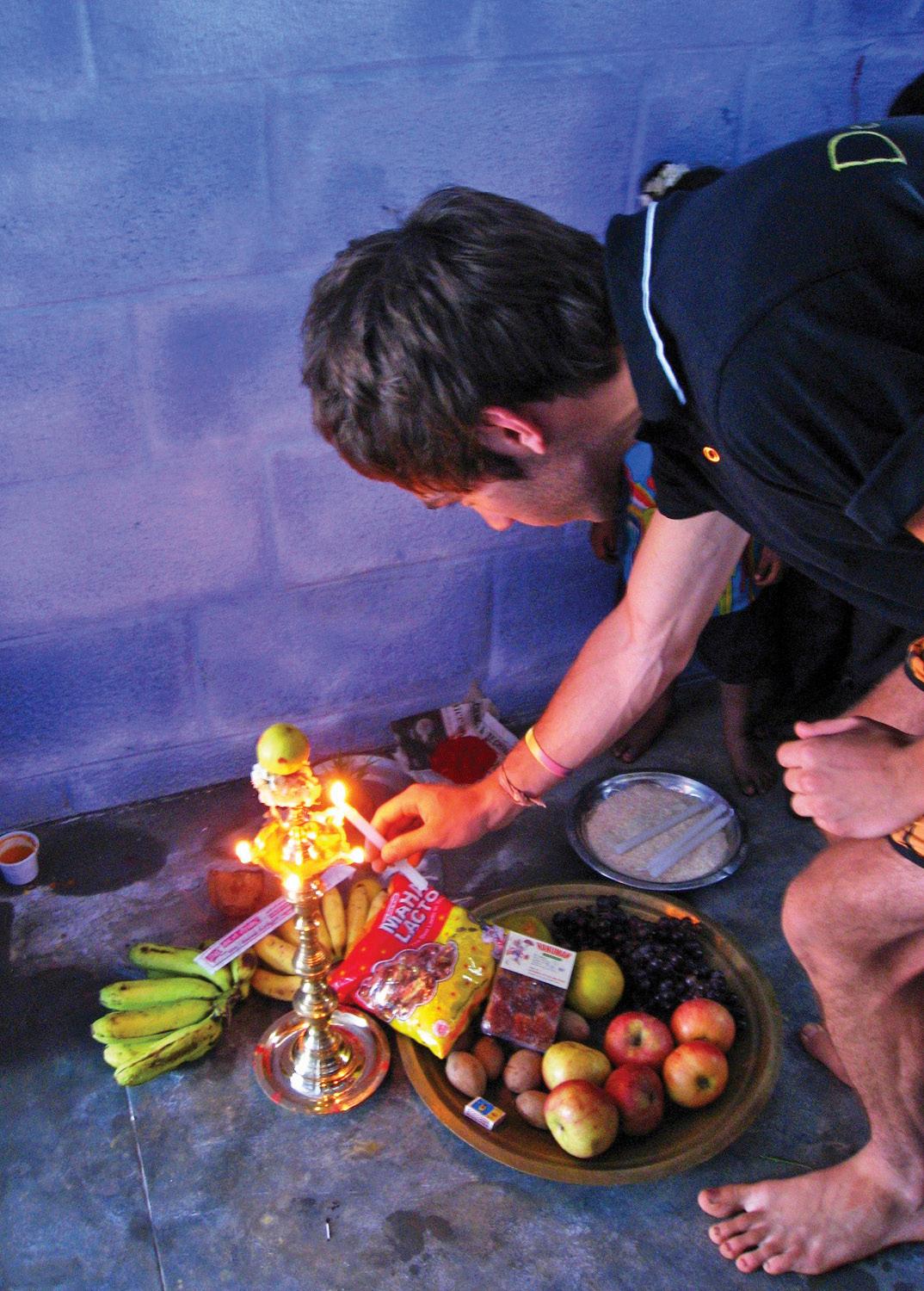
After a tour of RTU we set off to work. The proc ess was very simple. First we helped a family empty their palm hut of all possessions. Things were moved to a nearby space on the ground and stayed there until construction was com pleted, about 10 days later. Once empty, we took to the hut with a knife and brute strength. We slashed at straw bindings and ripped off palms. The hut came apart easily. Maybe too easily! The ground is then cleared and we are back to a dry flat piece of land. We then dig ditches for the foundations and when all is level, we work as labourers for the bricklayers and masons. Each house is made up of three rooms—a kitchen, a bedroom and a communal room. Outside, at tached to the house, is an outhouse-type struc ture but it contains no toilet. There, the family can bathe from a bucket. If they want to go to the toilet, they have to walk into the fields around the village. After 10 days of solid work constructing the house, we whitewashed the walls and it was ready for use. Before a family can actually move
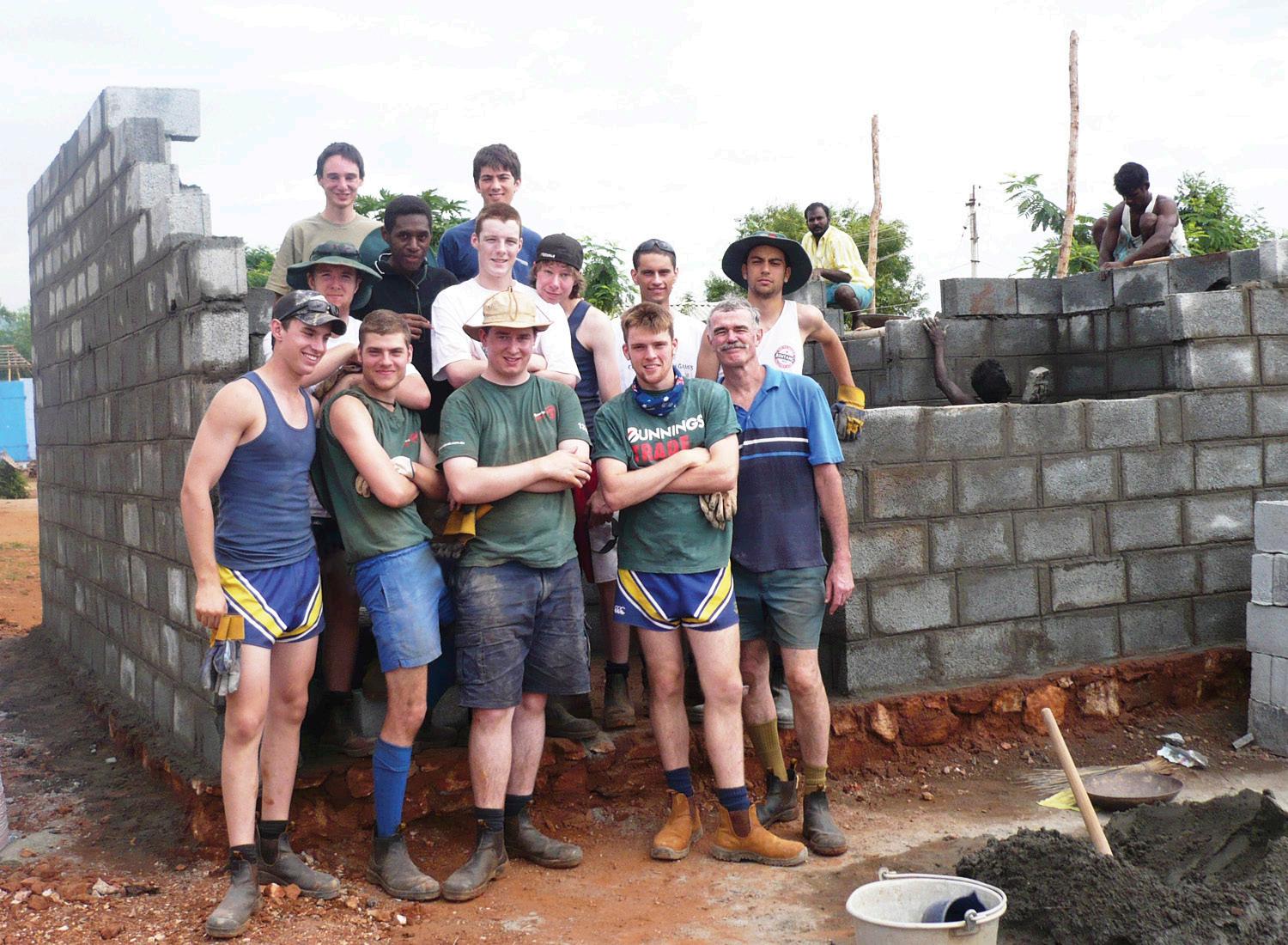
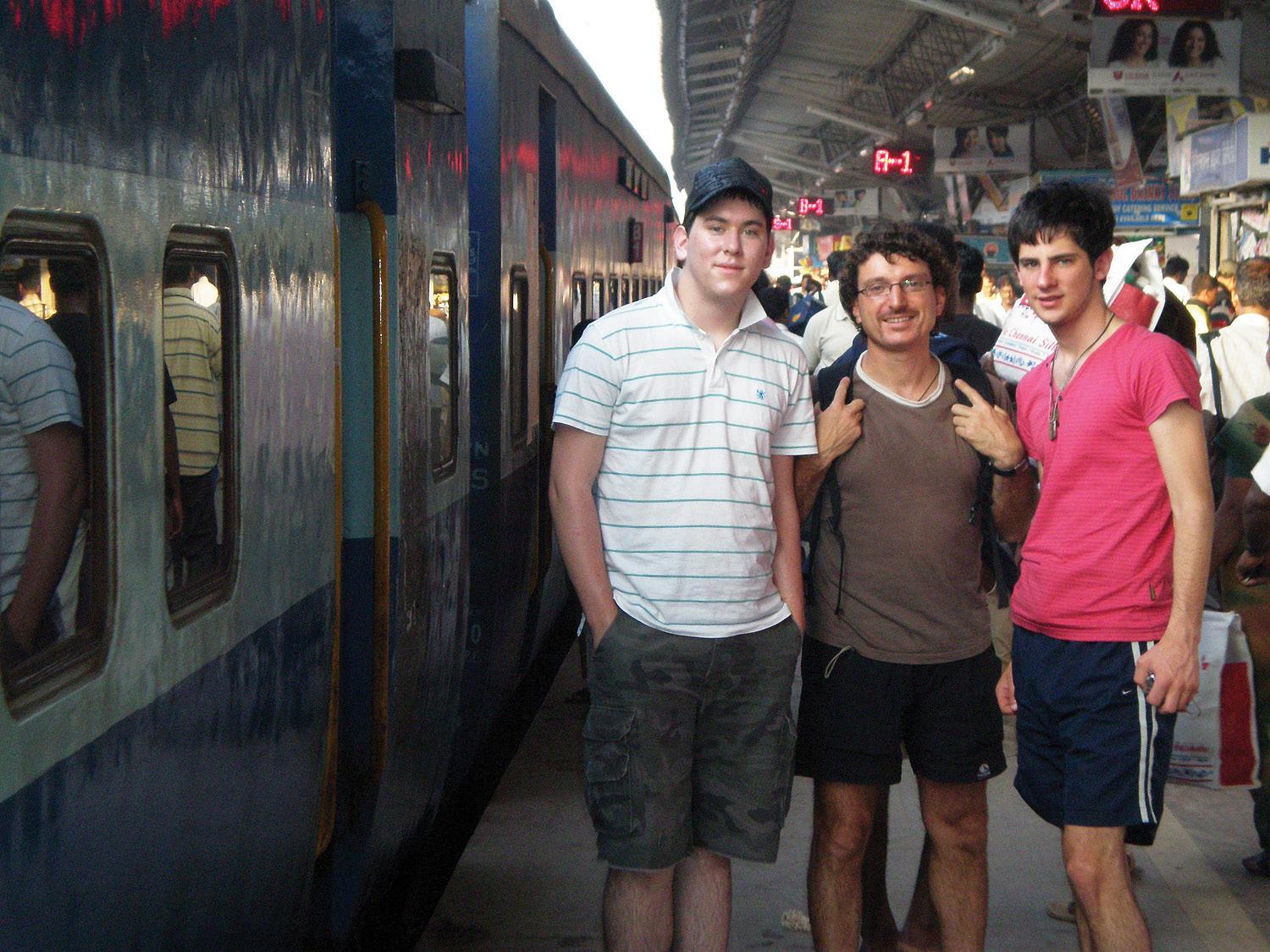
13
in, a house-warming ceremony must be per formed. This involves inviting family, friends and guest labourers around for a prayer, some offer ings of food and drink (warm sweet milk!).
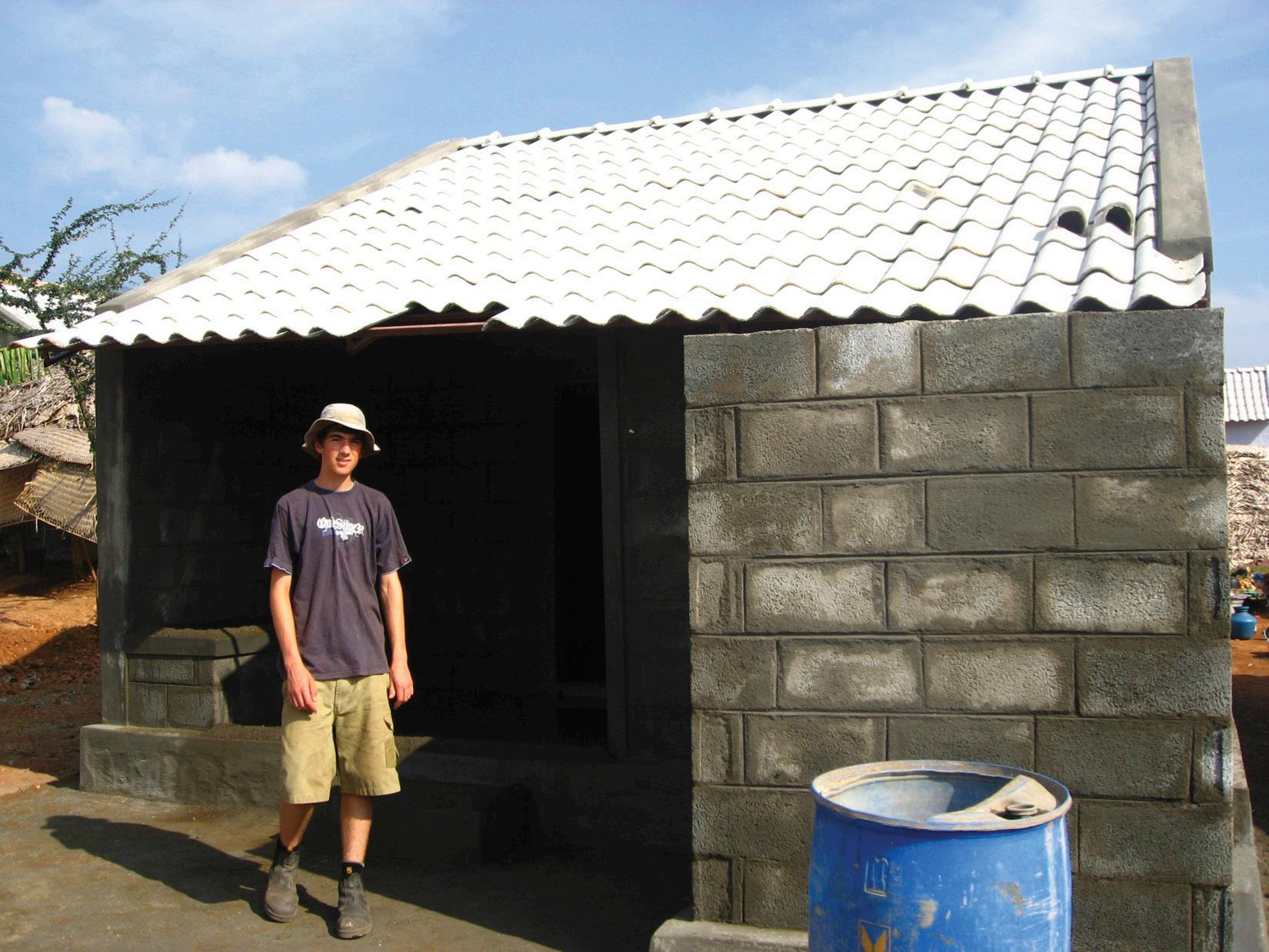
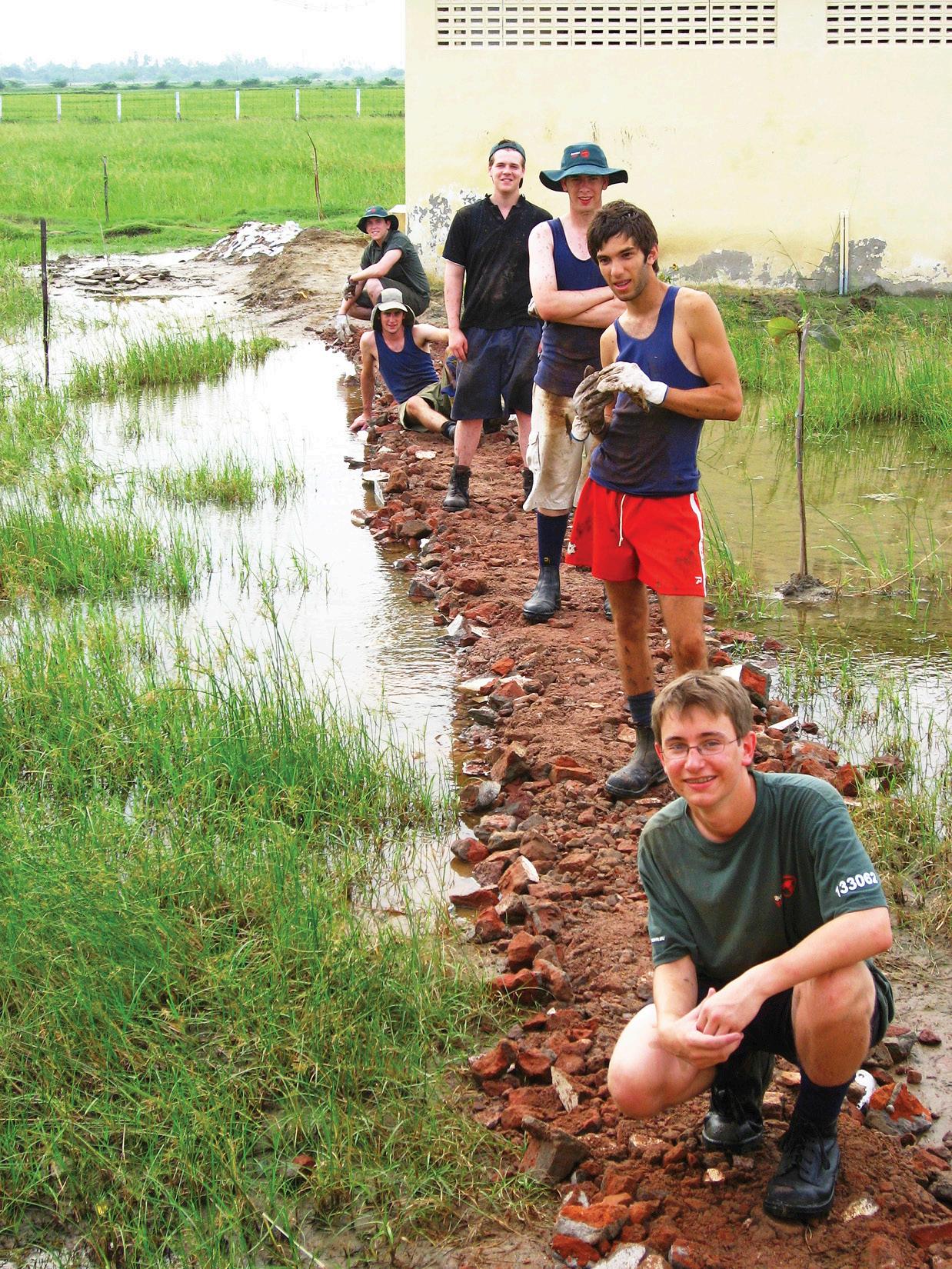

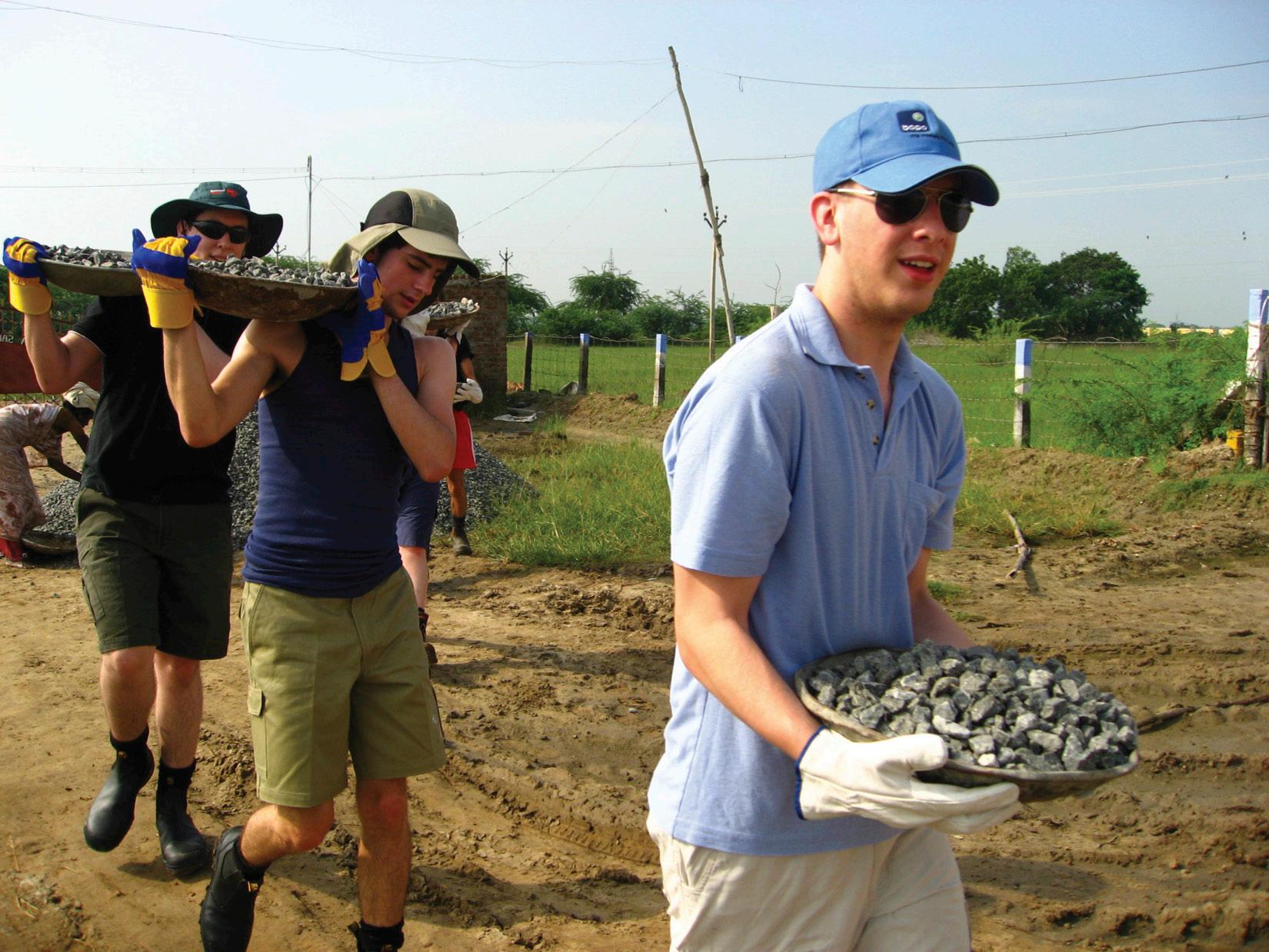
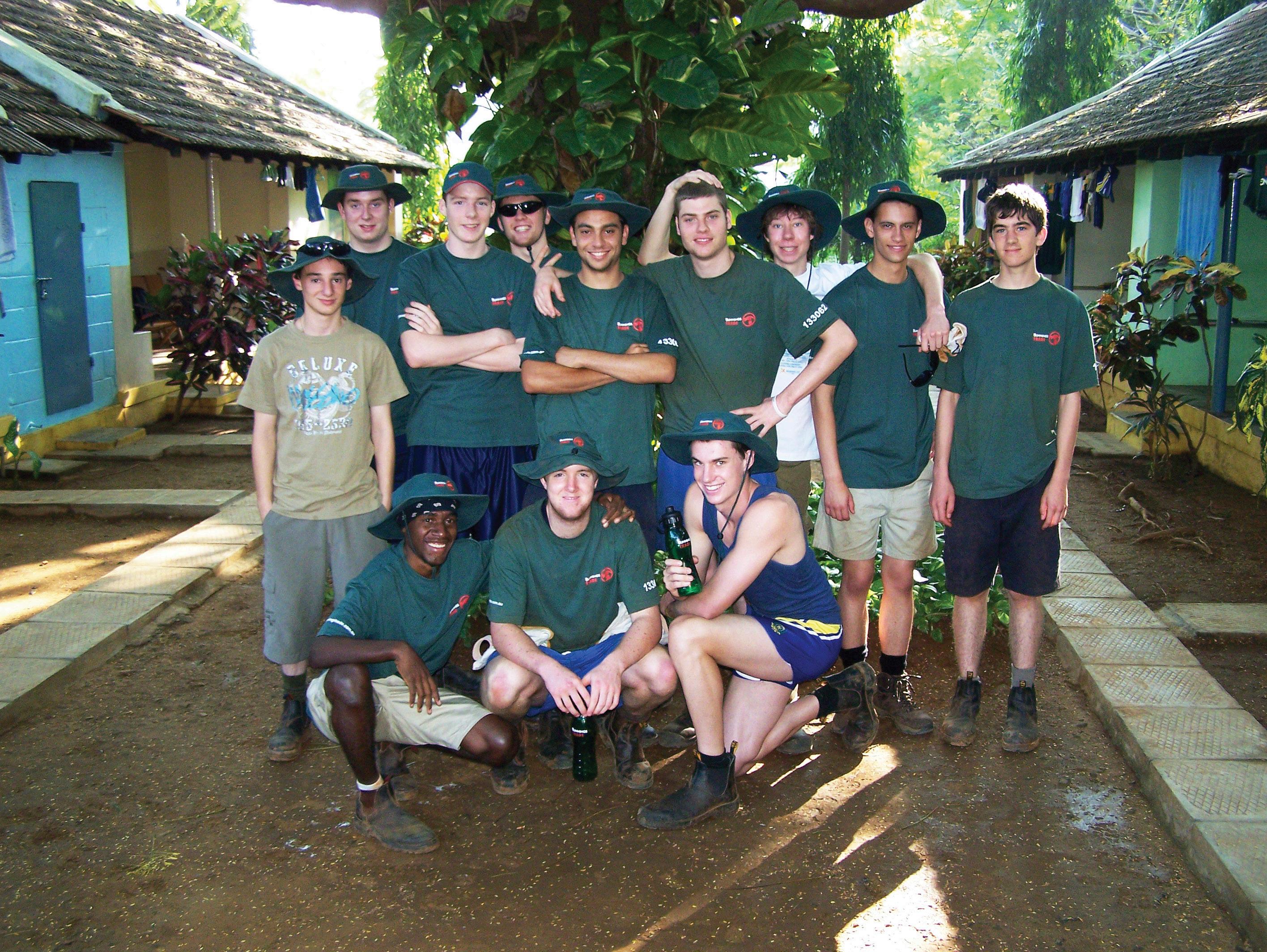
The people the Coolies help are the poorest of the poor. They are truly destitute. There is no mattress, no desk, and no lounge suite or kitchen table. There is no food and no pantry. There are not even any clothes or toys for the children. When we move them there are containers of water, some pots, cooking utensils, work tools
and a floor made of cow dung. Being able to see a family of four’s entire possessions, spread out in a space no bigger than a double bed, makes you re-evaluate your understanding of life. My thoughts provided no solutions to the dilemma of poverty and injustice, but if a little bit of dif ference can be made in some way, then that is a start. Maybe lots of people making a little bit of difference can be enough?
Details of a special “Old Colls Coolies’ Trip” see page 23
14
“India is an assault on the senses and people often comment on how much India affects them. I’m not sure when it was that I fully realised I was in India.”
LaSalleYouthCamp
Earlier this year the College leaders joined 50 other Leaders from Lasallian schools around Australia, New Zealand and Papua New Guinea for the 2008 Lasallian Leadership Seminar. The annual leader’s seminar, run by the Lasallian Youth Ministry group, took place at the La Salle Youth Camp in Kincumber on the New South Wales Central Coast.
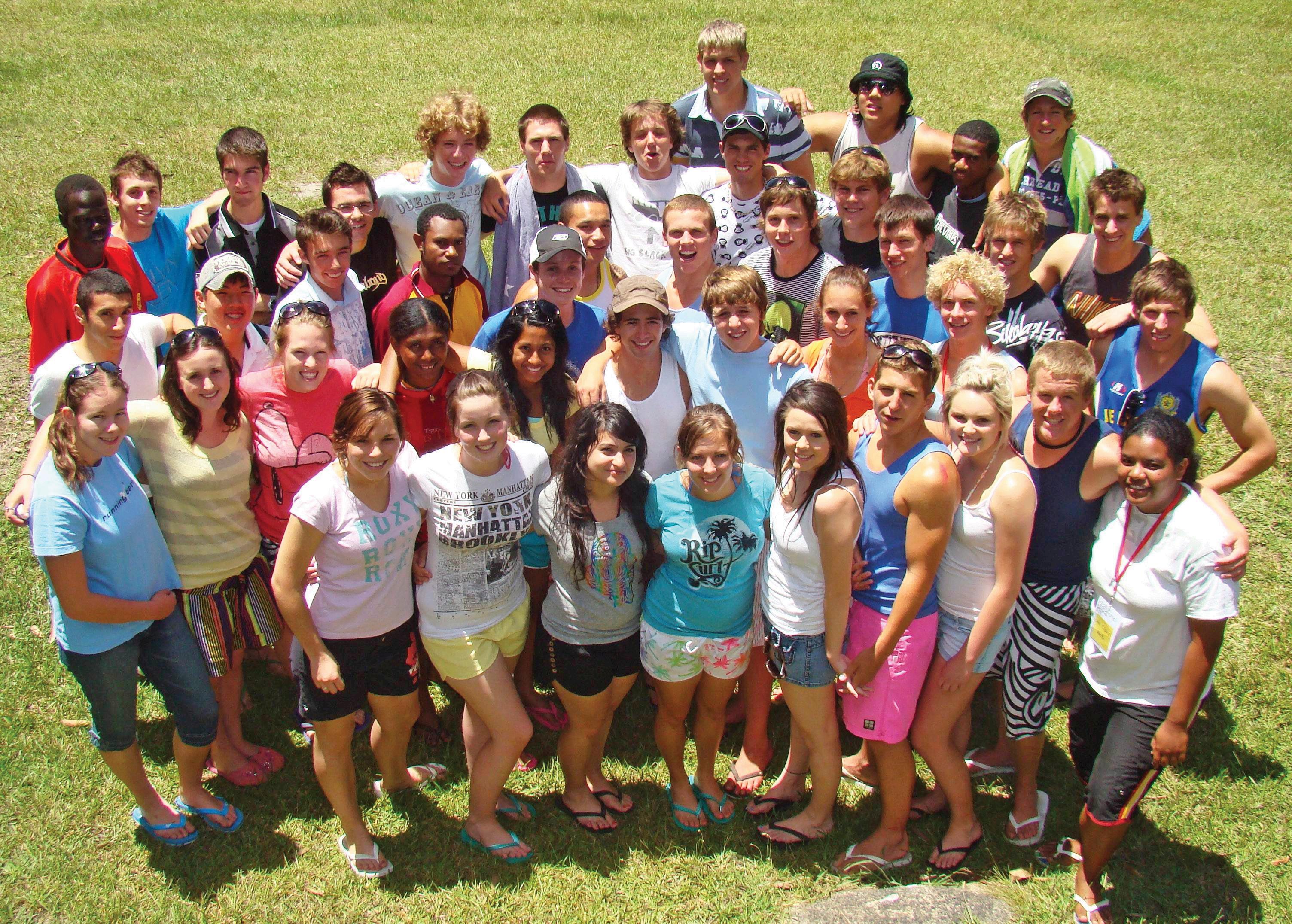
College Captain, Ben Nethersole and College Vice Captains, Josh Scipione and Mark Breda, represented the College and took part in discussions and activities focusing on various models of leadership, the Gospel call to leadership, our place in the Lasallian world and the life of John Baptist de La Salle.
The retreats, which have been running over the past 20 years, bring together students to share in Lasallian community and prepare for their year
as College Captains and Vice Captains, House Leaders and Prefects. Every year participants hear from guest speakers, including former School Leaders and De La Salle Brothers, as they share their experiences and prepare the students for their final year of school. In 2008, the team consisted of Br Mark McKeon, Director of Vocations and Youth Ministry and seven young people from Australia and the United Kingdom. The team also promoted Lasallian Volunteer programs such as Share the Mission and summer trips to Balgo Hills.
Each year the participants leave the seminar with new friends and contacts around the Lasallian District, shared ideas and resources for leadership and a deepening of their faith and commitment to the Lasallian world.
15
Together
we succeed
onships. Together we will work to improve our academic results. Together we will win foot ball premierships. Together we will raise $70 thousand for MAD. Together we will have fun. Together we succeed. An integral part of De La Salle College is our emphasis on social justice, which is a credit to the enthusiasm of our teachers and students. In 2008, may we continue to strive to raise funds in an enthusiastic manner for our less equipped Brothers’ schools around Australia and abroad to increase the opportunities of those less fortunate than ourselves. Perhaps for the senior students, there is the option to get involved in the “Coolies” program to India or the trip for Year 11s to remote Papua New Guinea.
Just as important as providing for fellow Lasal lians around the globe, we must act as broth ers to one another. If we bully or cause harm
Some of us may struggle to believe in God, but we can all believe and live the mission started by our founder St John Baptist De La Salle. This mission, still carried out by our brothers here today, is to educate all of us to become fine Christian men. Remember to enjoy every moment of the year and together we will succeed.
Ben Nethersole College Captain 2008
(This is an extract of Ben’s Convocation speech delivered in February)
College Leaders 2008
Back Row (left to right): Jack Hubbard, Gabriel Mon talban, Adam Bonaddio, Xavier O’Shannesy, Mitchell Robertson
Middle Row: Mr Peter Riordan, Ms Sally Buick,Julian Balthazaar, Michael Raymond, Jack Peterson, Mr Stephen Young, Br Bill
Seated: Kieren Ellis, Joshua Scipione, Ben Nethersole, Mark Breda, Shane Griffin
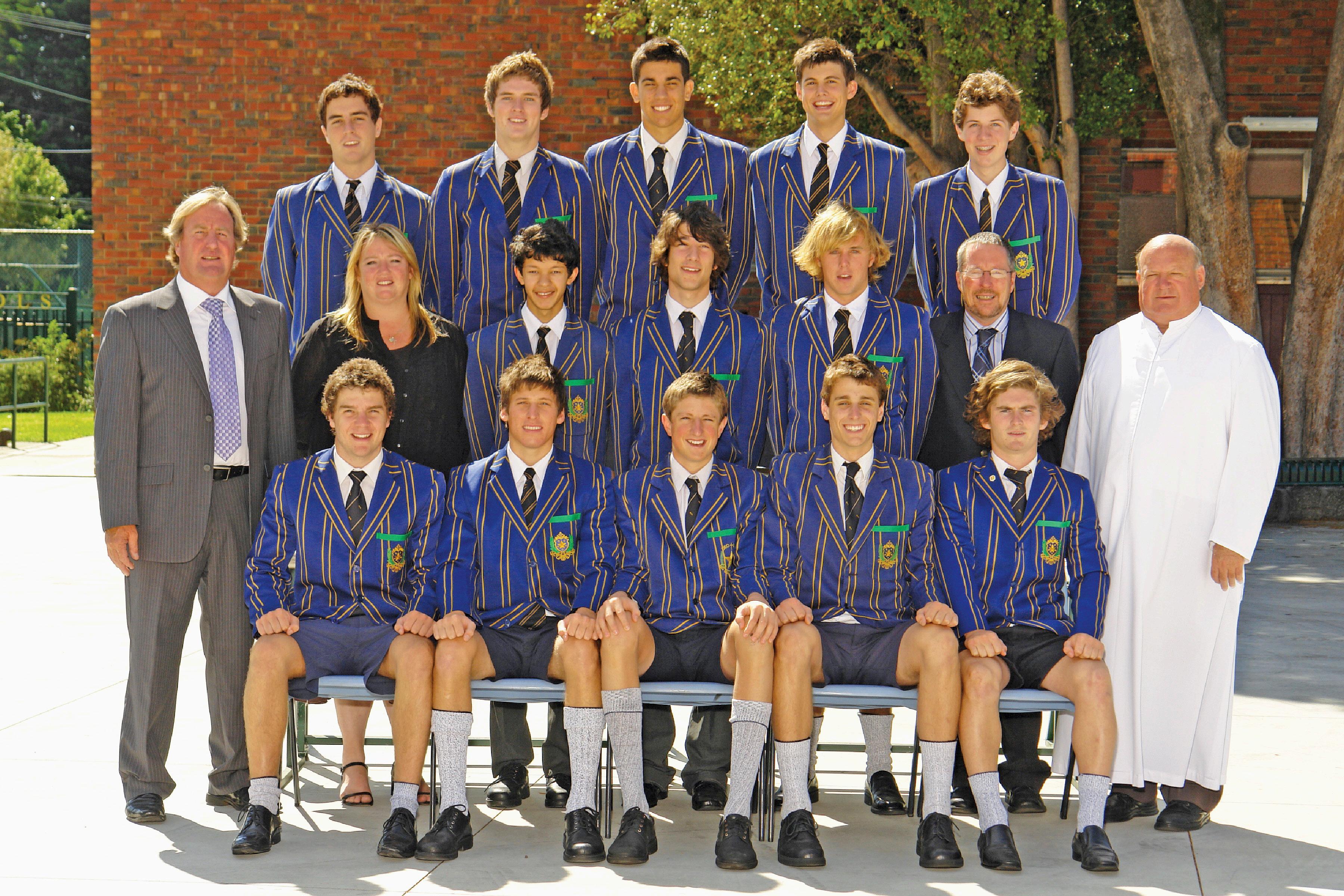
16
“We are on a Mission from God”
This year’s Mission Action Day MAD was the biggest yet in the 25-year history of the walkathon, which has come to symbolise the De La Salle spirit. Twelve hundred boys walked the 14-kilometre Gardiners Creek Track from Kooyong to Glen Iris raising a staggering $79,000 along the way.
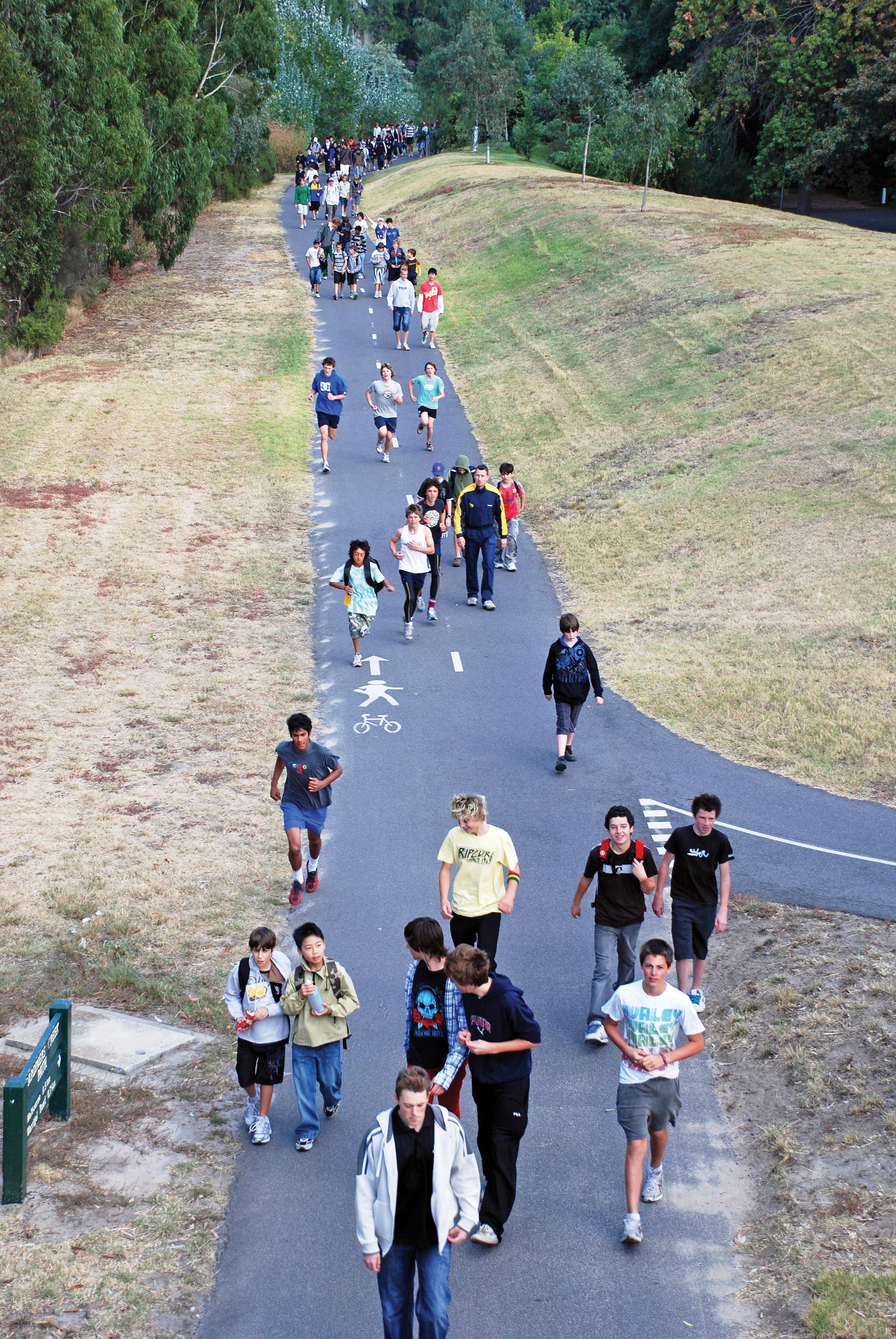
This represents almost $10,000 more than last year’s MAD total and includes a $4,000 donation by the College of staff wages gained from the recent VIEU’s Day of Action.
Money raised by MAD each year goes to the many different initiatives supported by the De La Salle brothers in Australia and overseas. As soon as the school year begins the students are busy organizing sponsors.
This year was no exception, with Josh Tyrer, 12 Solomon, raising an incredible $732 on his own. Corporate sponsors are also generous with a $500 donation made by Jebsens International to MAD via Tom Williams of 12 Vincent. As in most years, the Year 7s were unbeatable and this year two Year 7 classes raised well in excess of $2000 each; 7 Benilde raised $2356 and 7 Hegarty raised $2375.
The man behind MAD and long-time staff mem ber, Mr Ian Oliver, has pulled off yet another successful event and is to be congratulated for his efforts. Ian is supported by a hard-working committee of volunteer staff and students, who each year manage to achieve what can only be described as a “logistical miracle”.
Mr Oliver said that this year’s MAD was an out standing achievement not just because of its fundraising success but the enthusiastic rein forcement of the De La Spirit.
“MAD creates an incredibly positive atmosphere on both the day itself and the lead-up for both staff and students,” he said.
“It is one of the few times all staff and students work together for a common cause.”
“Personally I would like to thank the commit tee who worked tirelessly to make the day the success it was, and thanks to Peter Riordan for supplying the raisin toast which made the early morning meetings bearable.”
“It was indeed a real Mission from God.”
“Soyez toutes Oreilles”
A group of De La Salle French Language students have recently returned from France. A couple of them share their experience of French food, French phrases and French feats.
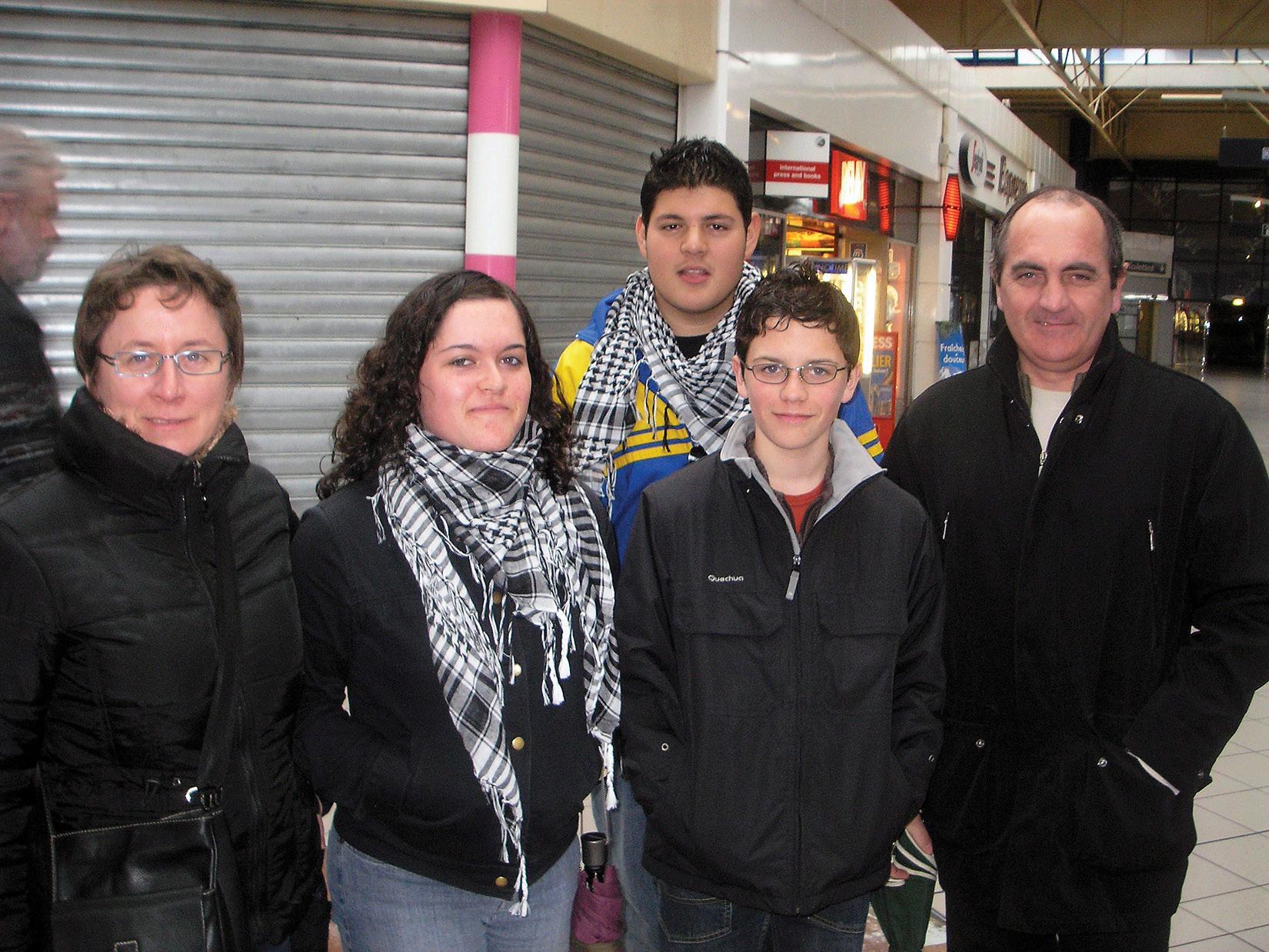

At first learning to communicate with my host family, the Mal lards, was a bit nerve-racking, but after a couple of days it be came easier and my host, Sonia, and I became good friends. We spent two weeks in Rennes, a city in Bretagne in the north west of France. We went shopping with all the other Australian kids and their hosts. I met up with a lot of Sonia’s close friends, one of whom could spin her arms 360 degrees (What a feat!) We practised a lot of French words and our vocabu lary has since improved. We attended classes at their school and tried to understand most of what the teachers were saying. A highlight was doing personal relationships in science. Lunchtimes at school went for an hour and a half. The canteen served a three-course French meal plus dessert. I ate lots of stewed apples and chocolate yogurt. Excursions included a trip to Mont St Michel and Carnac where we saw the most amazing histori cal sites and tasted some of the most delicious crepes, with Nutella! Bretagne is famous for its crepes (galettes).
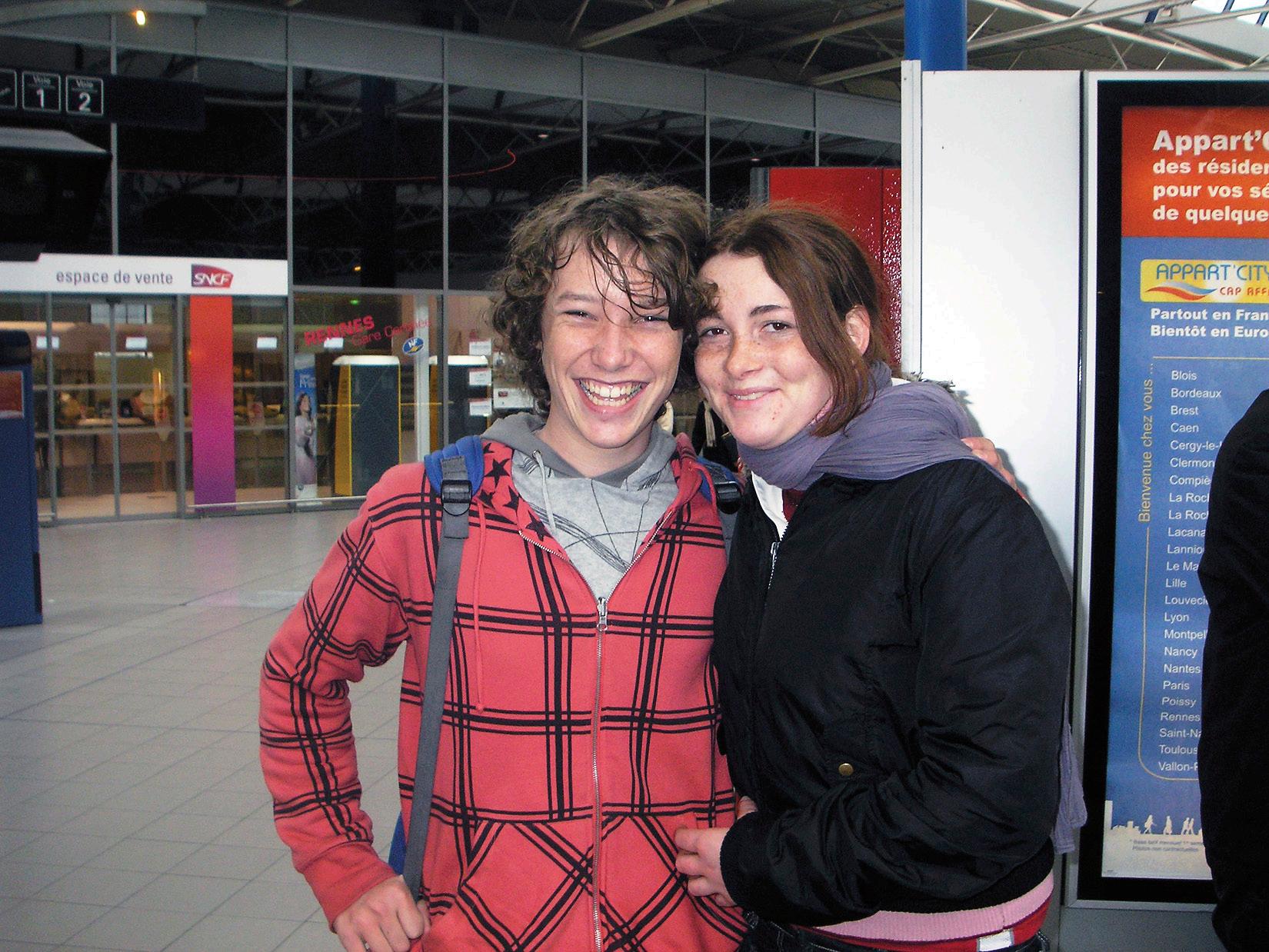 By Nick Bolt
By Nick Bolt
France can be described in one word, “unfor gettable”. Most days after school we went to the market and visited many historical places. My family, the Eslans, considered me as one of the family. My host, Madeline, became a re ally good friend and taught me a lot about the French language and culture. School was fun, (especially when Nick Bolt nearly got kicked out of the French class because he was shout ing across the room). I learnt that French people enjoy smoking—a lot. A highlight was the day we played soccer and basketball against the French boys. Unfortunately they beat us in soccer, but we made up for it and beat them in basketball. Our favorite phrase was ‘Soyez toutes oreilles’ which means ‘everybody listen up’.
By Carlos Saliba
18
Where Are They Now?
Sam Jamieson (2004) won the 2008 Stawell Gift. Sam, who at 21 was the youngest runner in the field, won convincingly. Other Old Boys to do well at Stawell over the years are Jason Richardson (1993 Winner), Dallas O’Brien (1983 Winner) and Chris Brown (1973) who was third placed in 1976.
Dr Edward Duyker OAM (1972) was elected as a Fellow to the Academy of Humanities. His biog raphy of French Zoologist, Francois Peron, won the 2007 Frank Broeze Maritime History Prize. Dr Duyker is an independent scholar of Australian maritime exploration and is a world authority on 18th century French expeditions.
Justice Bernard Teague (1954) after a long and distinguished legal career, Old Collegian Justice Ber nard Teague has retired as a Judge with the Supreme Court of Victoria.
Toby Sullivan (1989) has been appointed the Associate Director of the Melbourne Comedy Festival.
Dr Michael Cash (1950), formerly Head of the School of Management at the Open Polytech nic of New Zealand, is now writing and teaching courses in management at Victoria University, Wellington. With colleague Wayne Taurima, he recently completed a series of ground-breaking monographs exploring the cultural basis of Maori businesses.
Dr John Cash (1967) lectures in psychoanalytic and social theory at the University of Melbourne.
Justin Cash (1985) is Head of Drama at Avila College, Mt Waverley and is the current President of Drama Victoria.
Michael Ingham (1976) is a principal consultant at Godfrey Pembroke Financial Consultants in Camberwell.
Dr Gerard Ingham (1979) is a general practition er at Daylesford.
James Symons (1962) recently employed by NASA in the US to work on measurement in space.
Nick Hope (1990) has been working for Qantas for seven years where he flies Boeing 747s and 737s. He is married to Melanie Ling and has oneyear old daughter, Olivia.
Max Taylor (2007) was awarded a scholarship from the Sport Australia Australian Hall of Fame which entitles him to financial support and mentor support from John Bertrand. Earlier this year, Max became a triple Australian Champion in the Australian 420 yachting championships in his yacht “Maximiser”. Max will now compete for a place at the London Olympics.
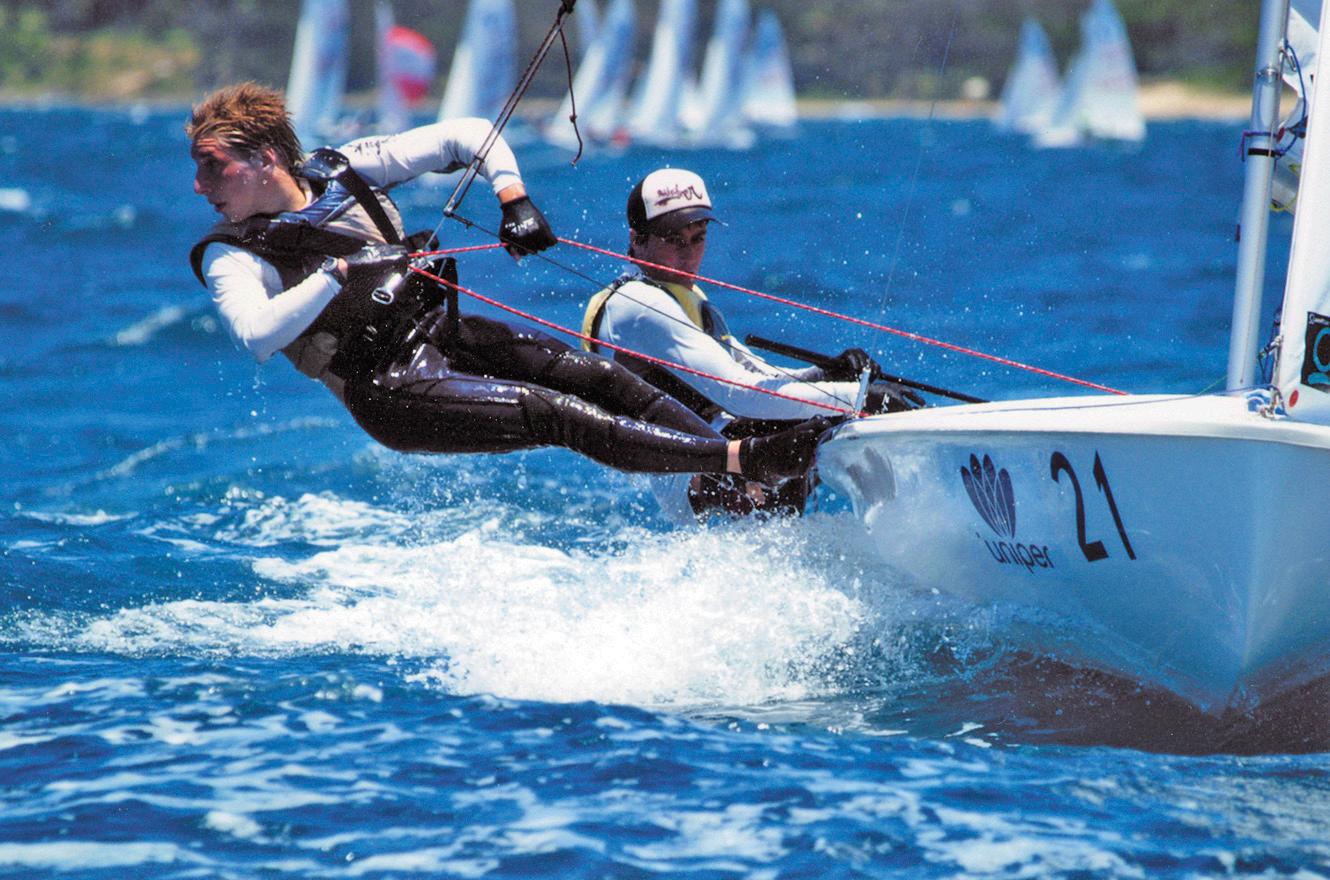
Br Julian Watson, Br Finian Allman and Br Christian Moe recently celebrated their 70th an niversary as De La Salle Brothers.
Michael Luscombe (1970) is the CEO of Wool worths. His father Brian and his brother Terry (1972) are also Old Collegians. Michael studied at Monash University after leaving De La and has been with Woolworths since 1974.
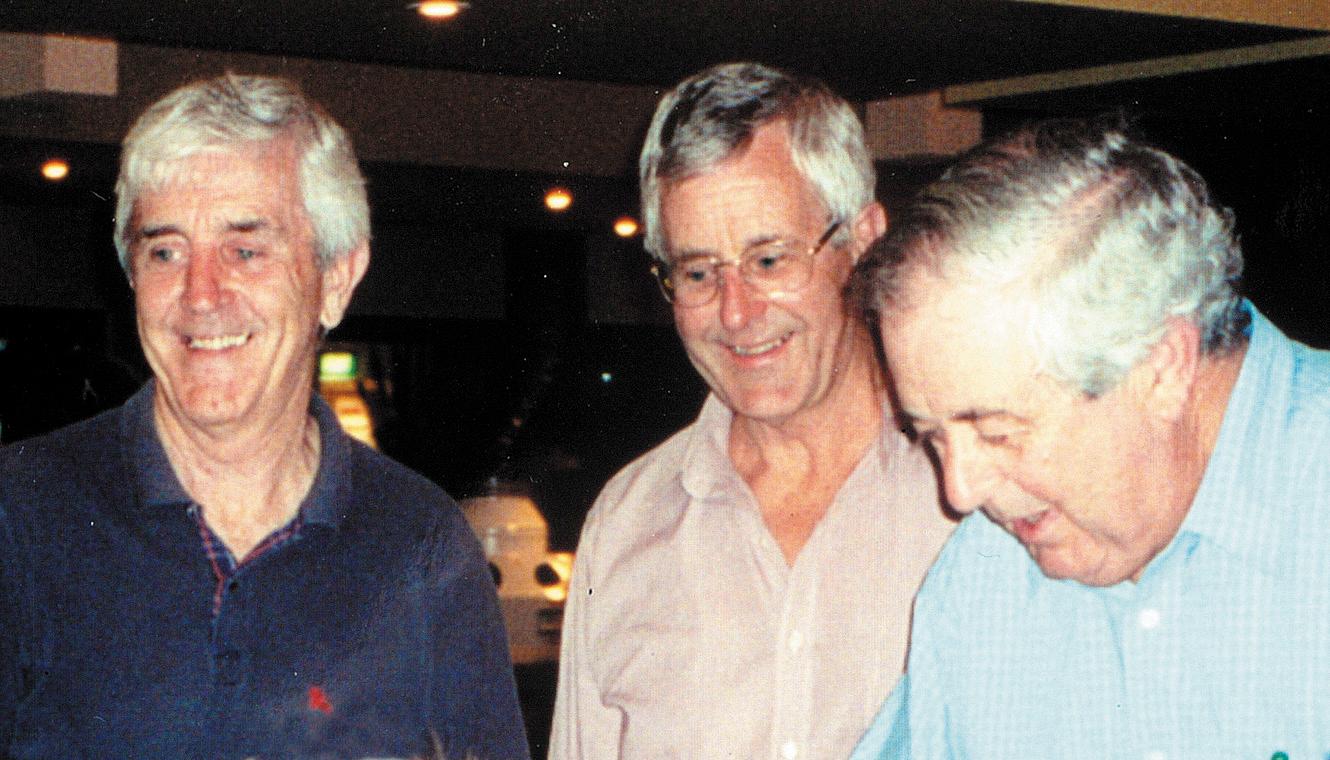
David Lee (1972) and his wife, Elizabeth have returned to Malvern after living in the USA for 30 years.
Brendan Danaher (1991) has been working with Canon Australia for the past 10 years as the Na tional Sales Manager for the Consumer Imaging Products Group.
Hugh Crowe (1964) runs “The Spectacle Site” at Stud Park Shopping Centre in Rowville
Michael John Loft (1964) After a 30 year career in banking, Michael, who is the older brother of Br Denis Loft, now works in hospitality at Box Hill Golf Club.
John Gill (1946) is a retired dentist and active parishioner at Holy Family Mt. Waverley.
Alan Badrock (1969) is a Senior Sergeant of Po lice and Officer in Charge of the Burwood Police Station.
Stephen Badrock (2005) is currently studying at Monash University and this year has joined the Old Collegians’ Committee
Ken Coughlan (1971) is retiring this year as Prin cipal of Abbotsford Primary School. Ken is a Life Member of the VAFA Umpires Association and also the Secretary of the Northcote RSL.
Tony Coughlan (1955) is retired, living in Cobram and enjoying lawn bowls.
Justice Bernard Teague (left) with brothers John and Gerry
19
Brian Coughlan (1958) is in retirement after a 42 year career with the PMG and Australia Post.
Able Seaman Alwyn Burt (On Active Service) perished on the HMAS Sydney in 1941.
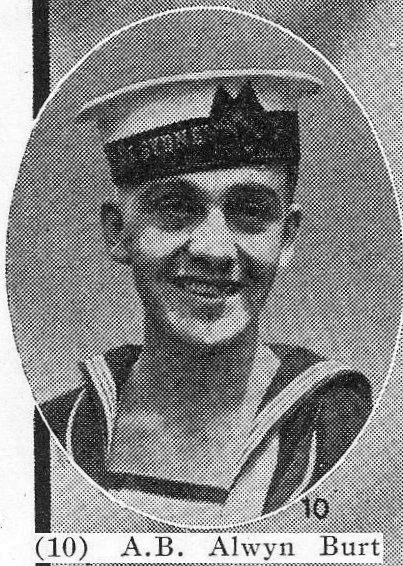
Michael Coughlan (1961) is the Chief Climatologist for the Australian Bureau of Meteor ology.
Adrian Coughlan (1966) is a manager with Rennai Australia
Chris Styring (1990) recently married Sarah Bourke and is now settled in Mel bourne having spent the best part of a decade in the UK working for the Williams Team on the Formula 1 racing circuit.
Paul Jennings (1952) is on the speaker’s cir cuit specialising in the funnier side of Australian politics.
John Farnan (1950) is retired and living in Binnin gup near Bunbury, WA.
Michael Hunter (2001) is in his honours year for Mechanical Engineering at the University of Melbourne.
David Hunter (2006) is studying archaeology at La Trobe University and is the Archives Manager at the College.
Josef Vondra (1959) is editor of the Lorne Inde pendent newspaper
Jack Firman (1957) brother of Br Bill Firman, has just completed his term as CEO of BoysTown, one of Australia’s largest youth charities.
Leo Bohan (1945) is a retired Public Servant.
Nick Dabbs (1992) a former School Captain, has recently returned to Western Australia to take up a teaching role after teaching at CLC Eltham.
Mark George (1983) has reached Mt Ev erest Base Camp in Nepal enroute to the summit. Mark’s Everest blog is at: http://blog.com/profile/?userid=1280742
Joel de Carteret (JD) (1999) recently made it into the top 12 dancers on the Channel 10 television hit series So You Think You Can Dance. Joel joined De La in Year 4 in 1991 and since graduating has built the dance faculty at the Melbourne Music Academy. He’s toured with Usher, Destiny’s Child, Ja Rule and Ashanti, Koffee Brown, Guy Sebastian, Holly Valance, Tina Arena, Jade Macrae and JWess. He has choreographed for heavyweights—Israel, Christian Alexander and Jade Macrae. He has taught and performed all around Australia, as well as in Chicago, San Francisco, New York, Vegas, Los Angeles and Taiwan, and was the founder of the Dance2XS Australian Branch in Melbourne, and the Artis tic Director of Kulture Break. As a child, “J.D.” would imitate Michael Jackson’s ‘Beat It’, ‘Bad’ and ‘Thriller’ in the living room and perform the routines for his family. His first dance appearance was at a performance in Year 6 at the College which culminated with him moon walking off the stage! Whilst still at school JD appeared in the Melbourne productions of The King and I and South Pacific and played the role of Jake O’Reilly (Froggy) in the first two seasons of the TV series Ocean Girl
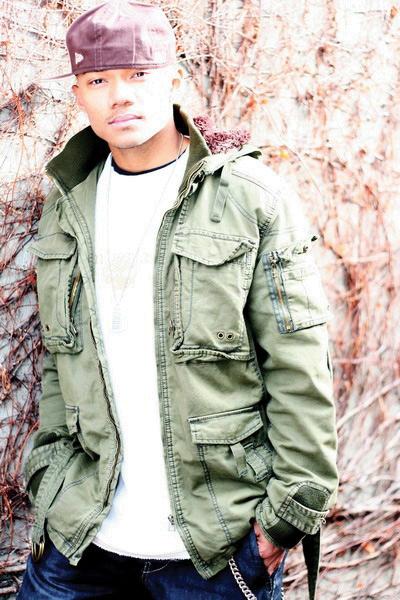
Michael Fisher (1964) retired from teaching at Balwyn High and lives in South Melbourne where he enjoys a trip to the local market.
Paul Fisher (1968) a former College vice captain is recovering after suffering a stroke.
Adrian Fisher (1971) known fondly as “Ox” lives in East Bentleigh and is the Business Manager at OLSH. He also coordinates young MSJFL um pires.
Gregory Fisher (1972) recently changed jobs and still finds time for a regular game of golf and is also still involved with the Ormond football club.
Peter Fisher (1962) is currently working for Al iansz Insurance and lives in Glen Waverley. Peter is involved with Mazenod VAFA football club.
Bernard Fisher (1974) lives at Bundoora and is a chef. Like most of the family, he still follows the fortunes of the Collingwood Football club.
Reunions 5 Year Friday 30 May at The Racecourse Hotel 10 Year Friday 20 June at The Malvernvale Hotel Year 12 (’07) Friday 1 August MOFS (Mothers Of Former Students) Dinner Thursday 14 August 20
Rest in Peace
Fr John Wilkinson CM . died at the age of 93. Fr John lived in the St Joseph’s Presbytery.
Brother John Johnston , former Superior Gen eral of the Brothers, died in the USA.
Fr. Kevin Cronin SJ (1945) Died in India in October 2007.
David Stuart Mercer (1958)
Quinton Francis O’Loughlin (1943)
Frederick Bloomfield (1953)
Kevin Dempster (1943)
Patrick Egan (1947)
Bert Marshall (1957)
John (Barrie) Meagher (1946)
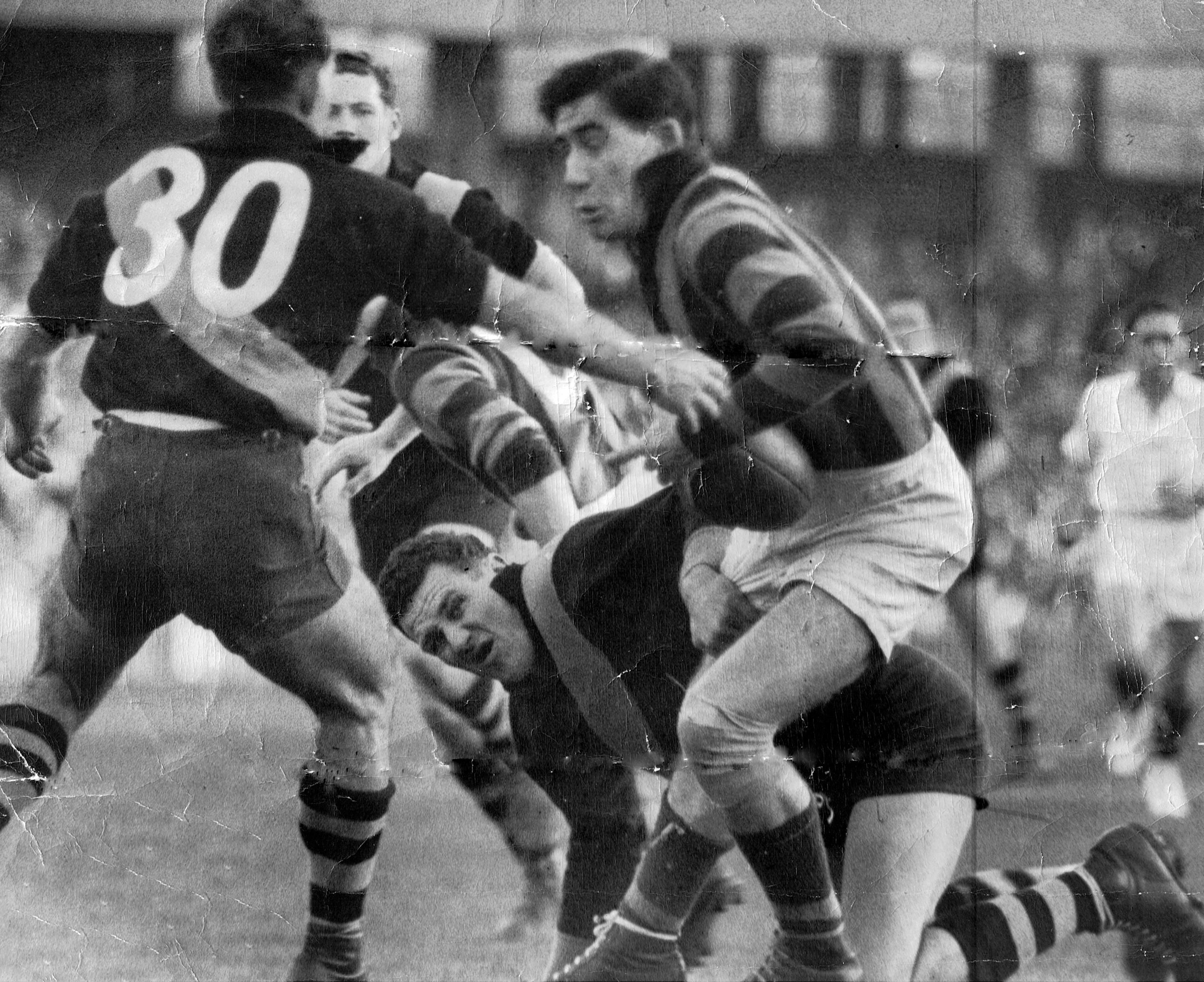
Kenneth Robinson (1948)
Br Baptist (John) Will (1932)
Pat Cash Snr . (1946) died in January after a long illness. He was buried at Holy Spirit Church, North Ringwood. In his final years at De La Salle, Pat distinguished himself as a school leader, scholar and outstanding allround sportsman. He was captain of the sen ior football First XVIII, captain of the Handball Team, vice-captain of the cricket First XI, and captain of St Edwin’s House. Pat graduated with honours in Law from the University of Melbourne in 1951. He also played football and was Hawthorn’s leading goalkicker in 1951. Later he became well known in the media as a post-match special commentator on Norman Banks’ football program on 3AW. At the end of his playing days in 1956, he became the first president of the Australian Footballers’ Associ ation—the forerunner of the present AFL Play ers’ Association. In 1964, Pat married Dorothy Hart and was to become the father of three children. In later life he derived a great deal of pleasure from managing the tennis career of his eldest son Patrick, the 1987 Wimbledon cham pion, whose climb into the grandstand to thank his father after that victory is one of the endur ing images in Australian sport.
Brother Edward Gehrig FSC died in February after a long illness. Former teacher at De La Salle from 1951 to 1969 and Headmaster from 1964 to 1969, Brother Edward Gehrig, died on 16th February, 2008. The Mass of Thanksgiving for his life was celebrated in the Chapel of St John Baptist de La Salle, Oakhill College Castle Hill on Friday 2nd Febru ary. Brother Quentin represented our Col lege community at the mass and, indeed, delivered the eulogy. Below is an edited version of that eulogy: “Once, when asked his definition of a gentle man, Cardinal Newman responded: “A gentle man is easy and puts others at ease.” Using his own criteria, Newman would certainly have proclaimed Br Edward a gentleman: A man we all admired, some of you since you entered the Novitiate with him in 1947, others during his years of apostolic ministry and others during his final years at Southport.
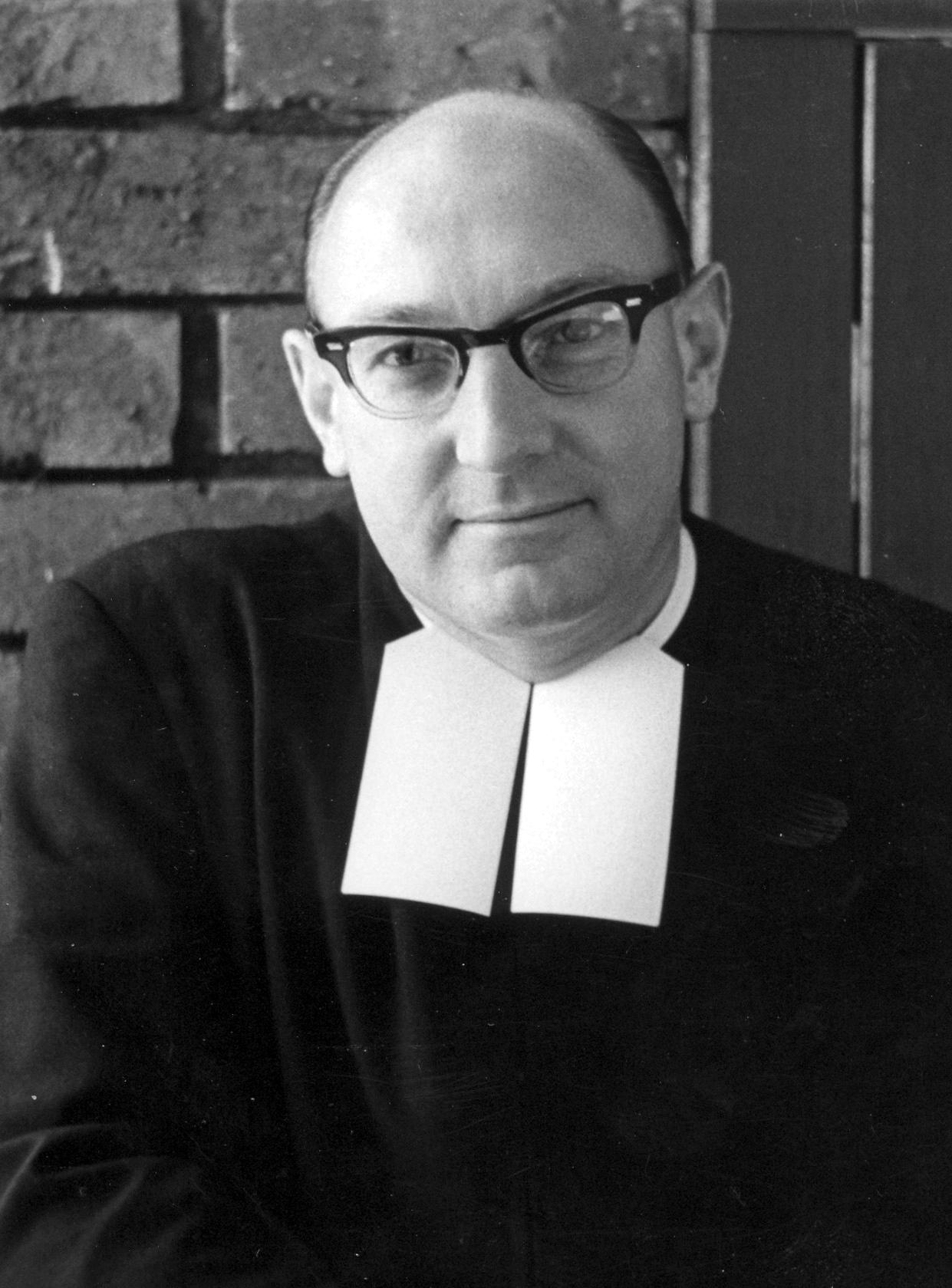
No doubt, Edward’s gentlemanly qualities were moulded by his parents Kathleen and Leopold. Born in 1925 in Marrickville and baptized Peter, he grew up in the Waterloo and Redfern ar eas where his father was a Wine Merchant. He attended the Patrician Brothers’ school in Waterloo for his Primary schooling and then his secondary with the De La Salle Brothers at Marrickville. After completing his Leaving Cer tificate, he joined the Sydney County Council for a short time until enlisting in the RAAF two weeks after his eighteenth birthday.
As Leading Aircraftsman 138023, he served as a radio operator on the island of Ambon where he and his small group of companions worked 8 hours on and 8 hours off and 8 hours on each day thus blurring usual day/night patterns.
Once he told Br Gerard Rummery that the two things he learned were how to play bridge and to smoke cigarettes! I’ve often wondered how he survived in an atmosphere of war quite alien to his background and personality.
After his discharge from the RAAF in April 1946, he returned to the County Council before
21
entering our Novitiate in January 1947, one of many idealistic young returned servicemen throughout the world who entered religious life to give their life to Christ Our Lord, and was given the religious name “Edward”. As well as nurturing his integrity and spiritual life, Edward’s years of training developed his personal gifts of graciousness, refinement and compassion—a true gentleman. His students, their parents and staff have always attested to his characteristic goodness and personal charm. Perhaps his giftedness as a ballroom dancer—the envy of staff members and students—and as a bridge player stemmed from such qualities.
Brother Edward’s distinguished teaching career of 45 years commenced at De La Salle, Mal vern in 1951 where he would remain until 1969.
Teaching large classes and studying part-time at Melbourne University, he established a reputation as a highly skilled teacher, with his methodical, tenacious and patient explanation of the intricacies of Maths—always linked to his sensitivity and kindness.
Serving as Principal of Malvern (1964-69) proved an onerous task for him. His own gentle nature aside—the appointment of key members of the Brothers’ Community to positions of responsibility elsewhere, the tragic death of Br Denis Crowe in an accident, the growing and veiled demands of staff and students conspired to test him to the limit. Still, his wisdom and compassion shone through during those years and then at the House of Studies in Cronulla. As my Deputy at Oakhill College, I appreciated his judgment and his willingness to challenge me on a proposed decision. In his quiet way, he would ask, “Did you consider such and such?” accompanied by that disarming smile of his. Those of us who had the privilege of living with Br Edward were struck by his prayerfulness. That he lived in the presence of God, I’m sure. Meditation was a precious time for him and would have provided a firm base for his per sonal qualities and conquering self. Speaking to him about prayer was a humbling experience for me.
To such a sensitive man, realizing and accept ing that his memory was failing him must have been a bitter blow. It is an affliction which terri fies us all for as Hopkins writes:
Annual
“O the mind, mind has mountains; cliffs of fall Frightful, sheer, no-man fathomed. Hold them cheap May who ne’er hung there.”
In his final years, the love and care of the Southport Community—particularly that of his devoted friend Br Anthony (John) Hanson— helped him cope until Alzheimer’s claimed his fine mind.
Thomas Merton writing Seven Storey Mountain claims that “the first and most elementary test of one’s call to religious life is the willingness to accept life in a community in which everybody is more or less imperfect.” That Edward ac cepted us as we are, loved us and gave of his best in association with us speaks volumes of the man.
Br Edward, may you as a true Lasallian who dedicated your life to the service of Christ Our Lord in others, rest in peace.”
Those of us who were fortunate to be taught by Br Edward not only gained the benefit of his outstanding teaching but were touched by the holiness and sensitivity of this outstanding man of God.
Brother Edward, we thank you and salute you as we commend you to God’s care.
22
Mass and Reunion The Annual Old Collegians Mass and reunion is being relaunched after an absence of many years. This year’s theme is “Fathers, sons and siblings”. Wednesday 14th May at 6:30 pm St Joseph’s Malvern followed by food and refreshments in the Performing Arts Centre at the College. RSVP essential for catering purposes there will be a small cover charge Adrian Fisher afisher@olsh.vic.edu.au phone 0433 919 262 Michael Bohan mbohan@kerryingredients.com.au phone 0439 172 465
Old Colls Online
The Old Collegians Association wants your email address.
The OCA is in the process of updating its records and would like to record the email addresses of those members who are online.
Send your email address to: oca@delasalle. melb.catholic.
edu.au
Old Collegians “Coolies”
Restoring Our History
The De La Salle College Archives is seeking any material on the College’s past, including uniforms, photographs, medals, trophies, certificates, copies of the Blue and Gold magazine (in particular 1920’s to 1930’s) or student newspapers or cutouts from public newspapers about the College.
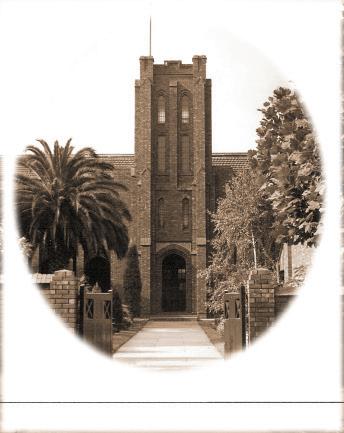
Anything!
At the moment we are especially seeking copies of the older editions of the Roll Call magazine .
Please send your donations to: David Hunter De La Salle College 1318 High Street Malvern, VIC 3144
India Trip January 20
As part of the De la Salle Coolies India Program, the College hopes to offer a special “Old Collegians” trip departing Melbourne in January 2009. Participants will be expected to raise $1000 each to cover the materials to build a house for a family in Tamil Nadu. (see article on page 12)

Other costs include the airfare to and from India. Accommodation and travel arrangements in India will be organized by De La Salle. For further information contact Br Denis Loft on 9508 3100 dloft@delasalle.melb.catholic.edu.au
Keep in Touch
OLD COLLEGIANS ASSOCIATION ONLINE CHAT FORUM
To help the Old Colls keep in touch with their fellow alumni, an online “forum” has been created where past students can catch up. Register at http://z9.invisionfree.com/dlsoca and click the link “Registration”
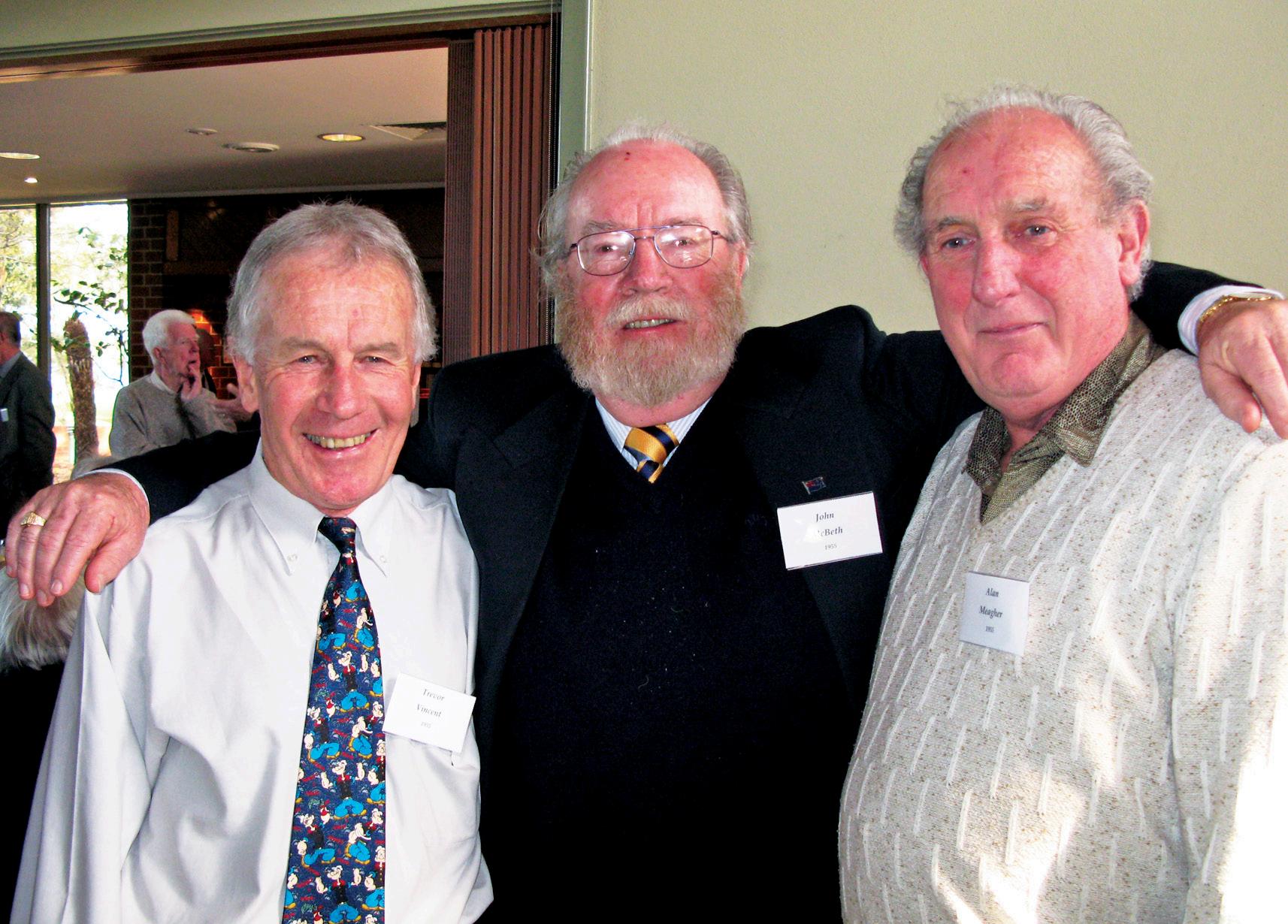
23
Together We Succeed
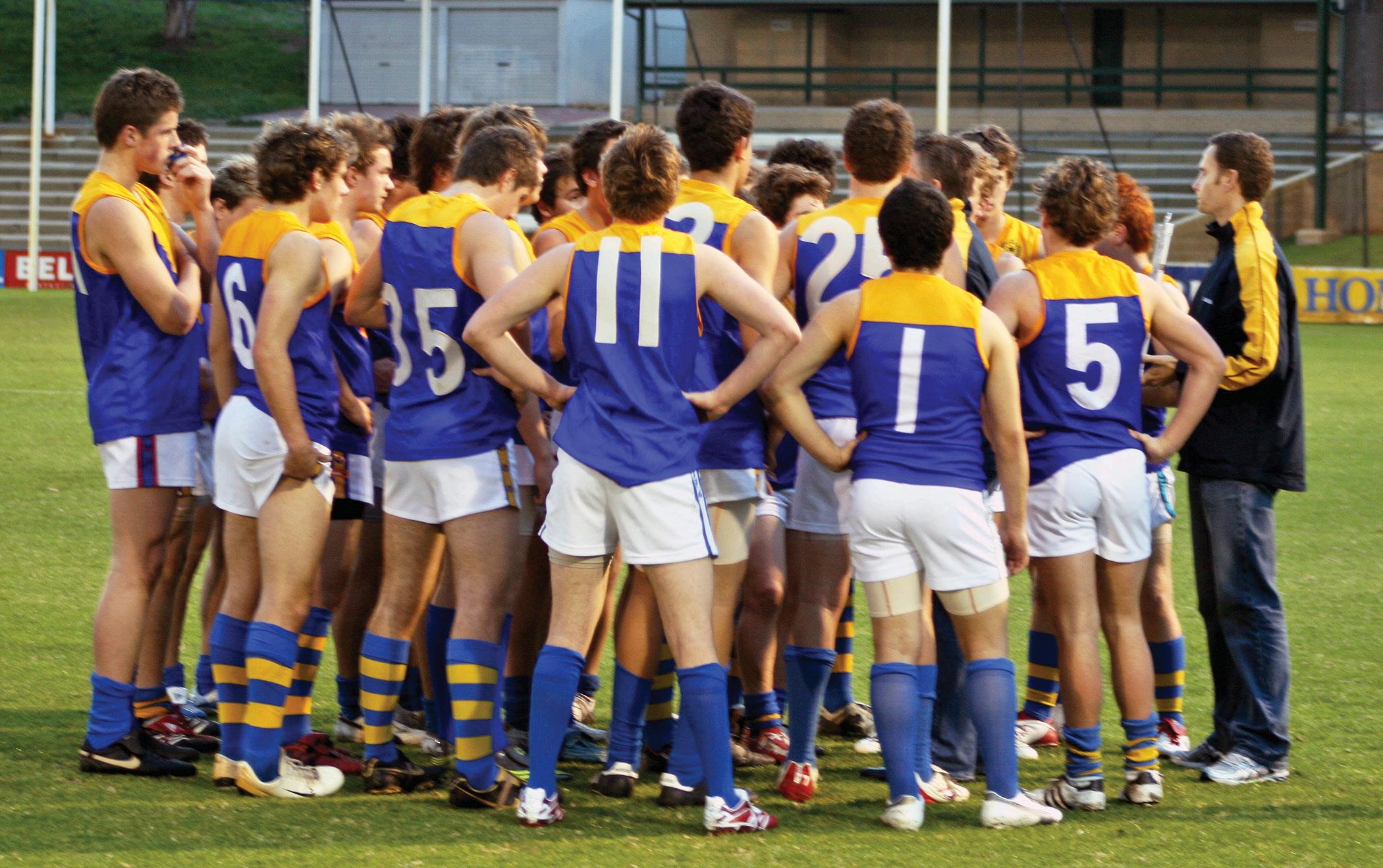










 Steve Young
Head of Kinnoull CampuS
Steve Young
Head of Kinnoull CampuS






















 By Nick Bolt
By Nick Bolt








